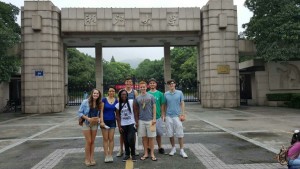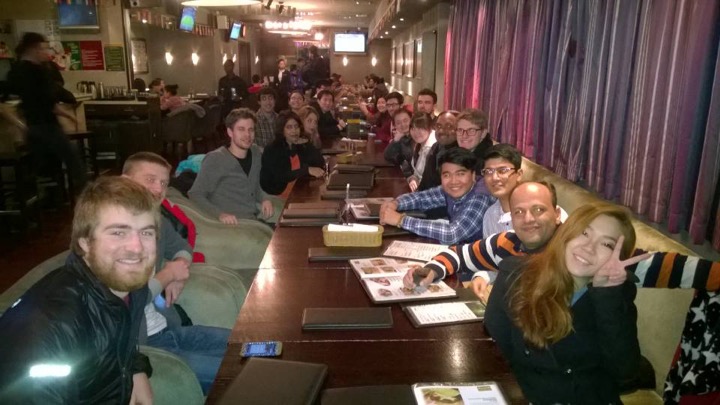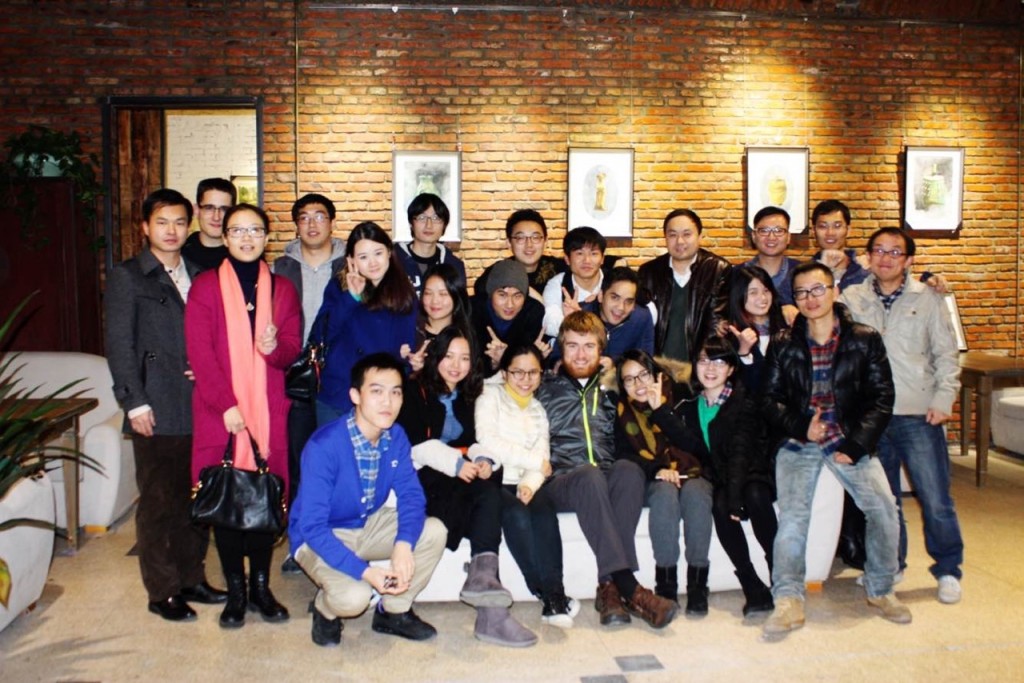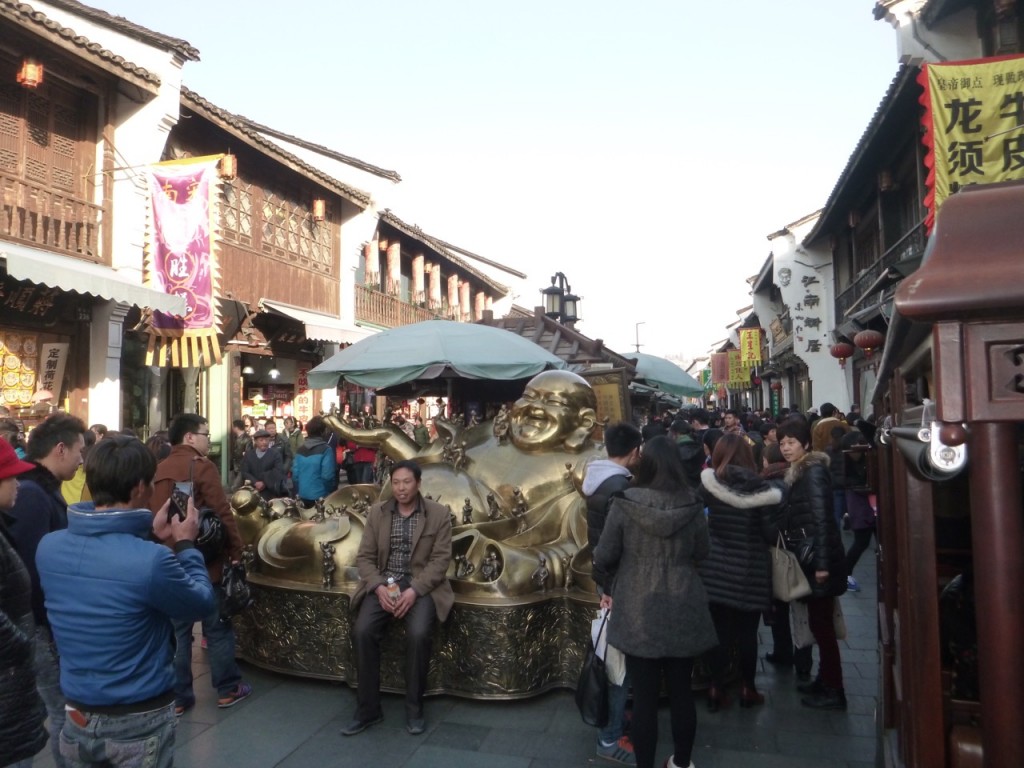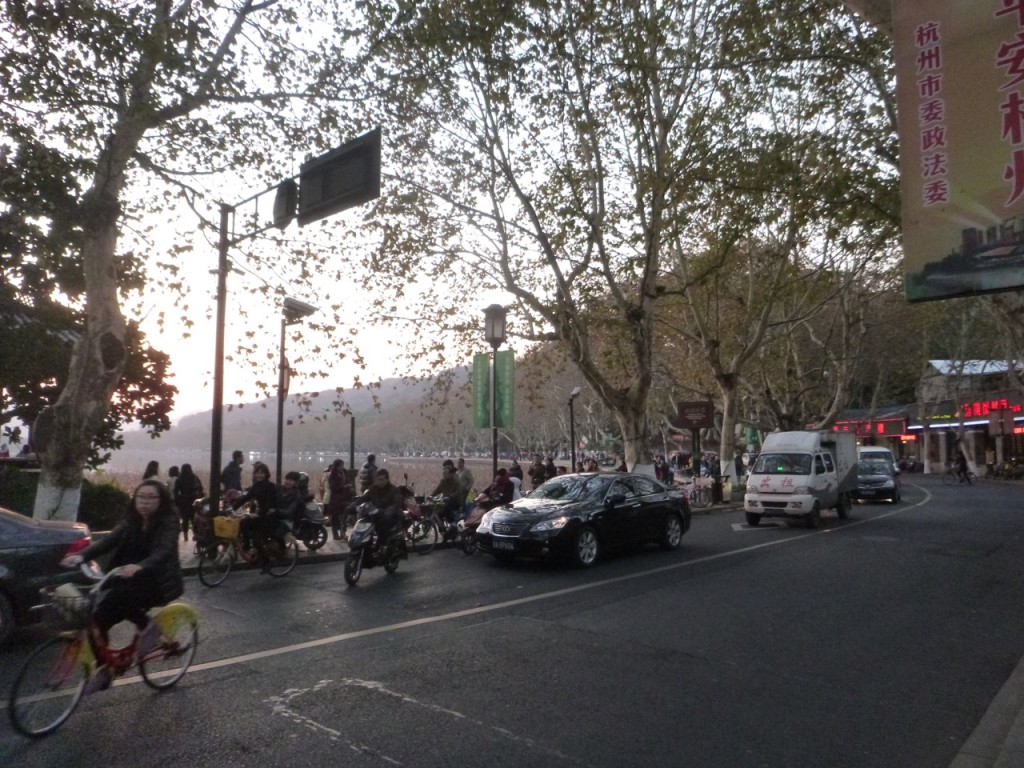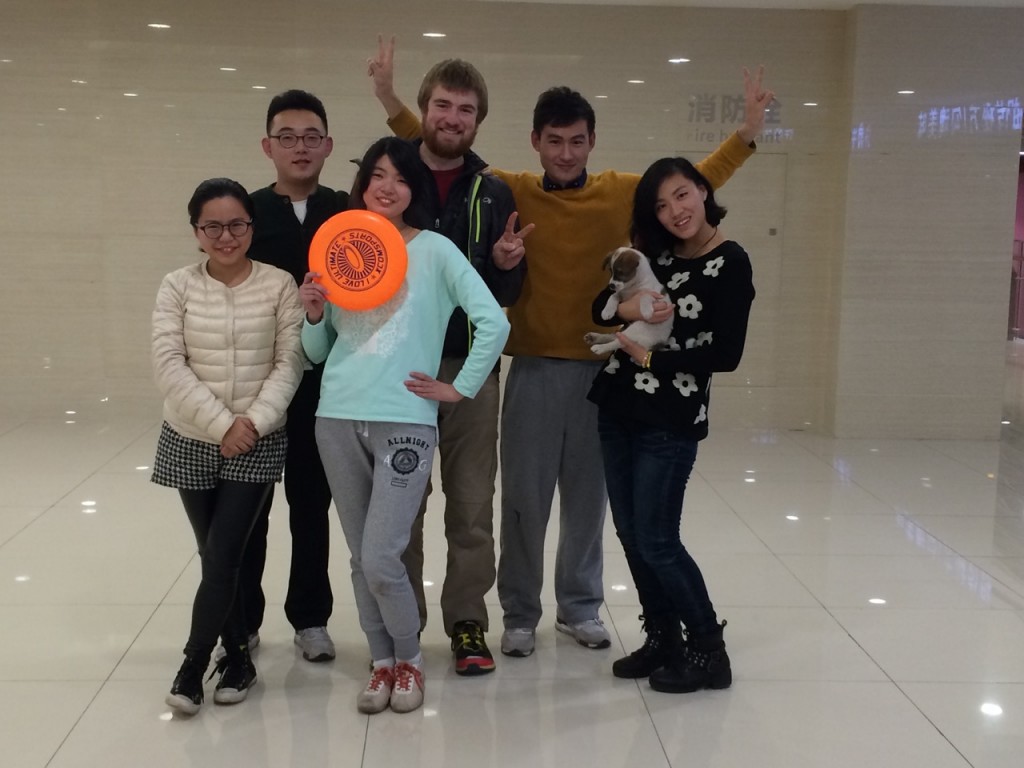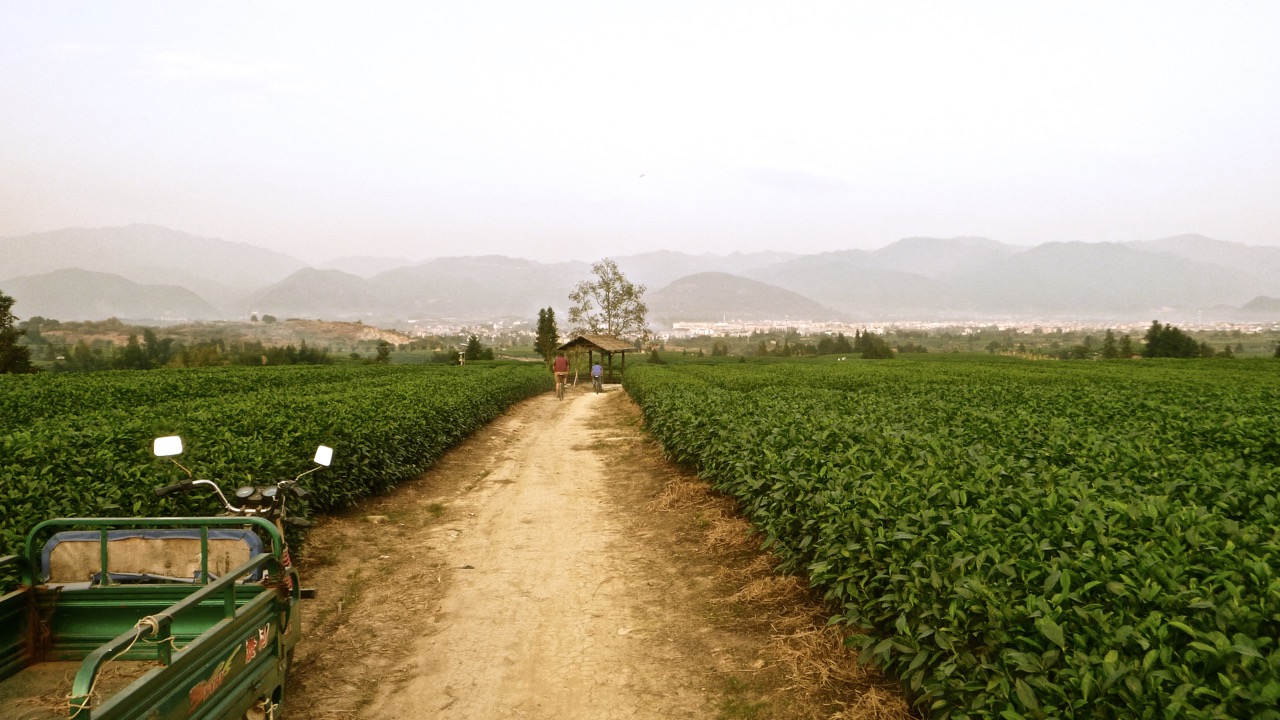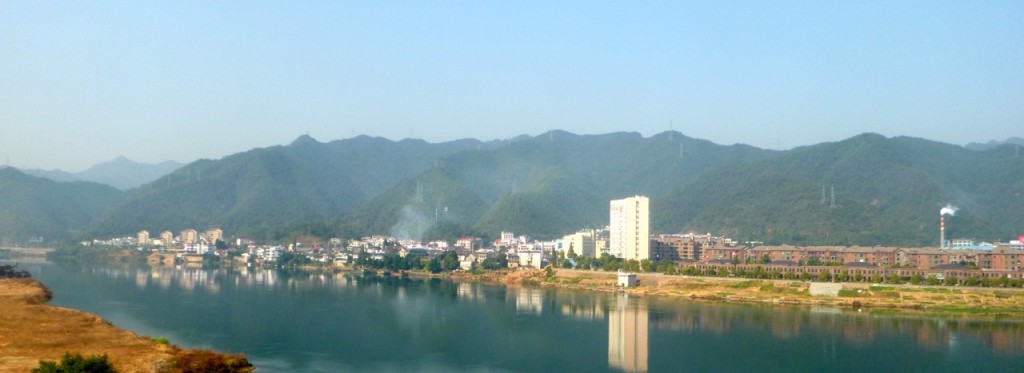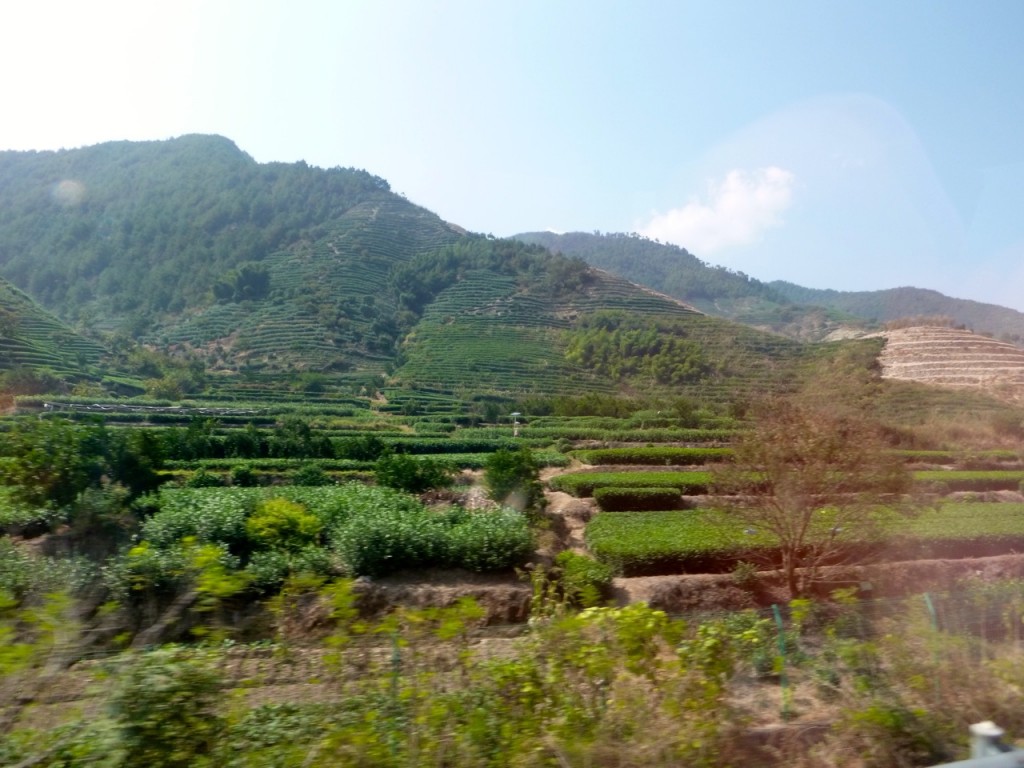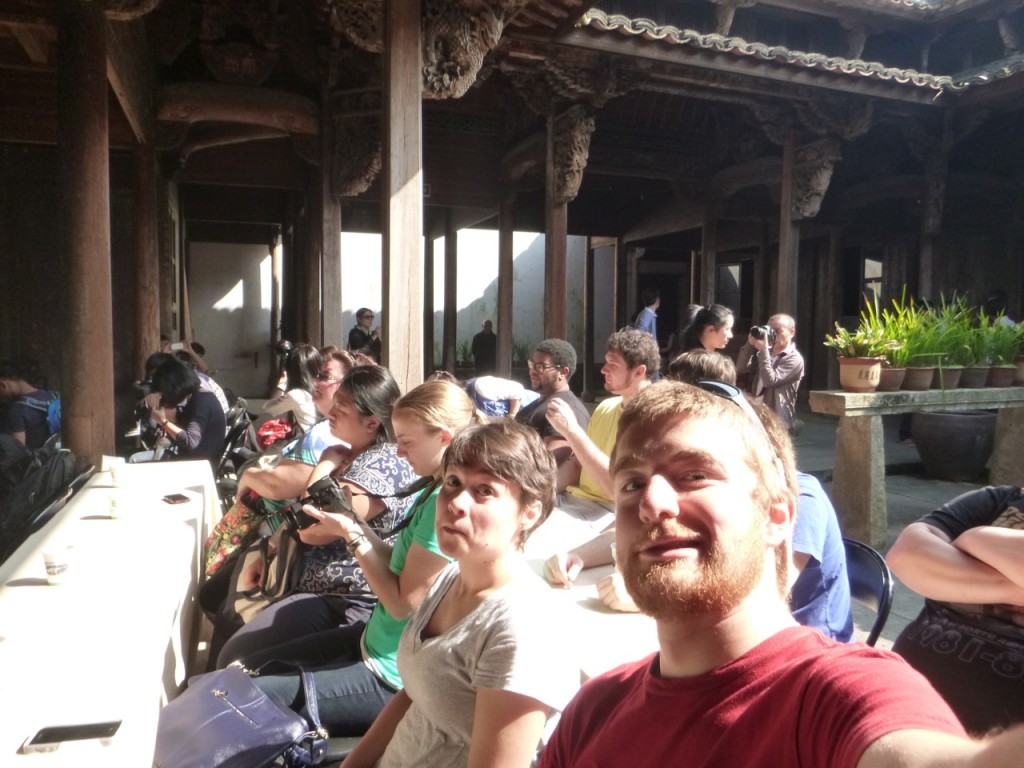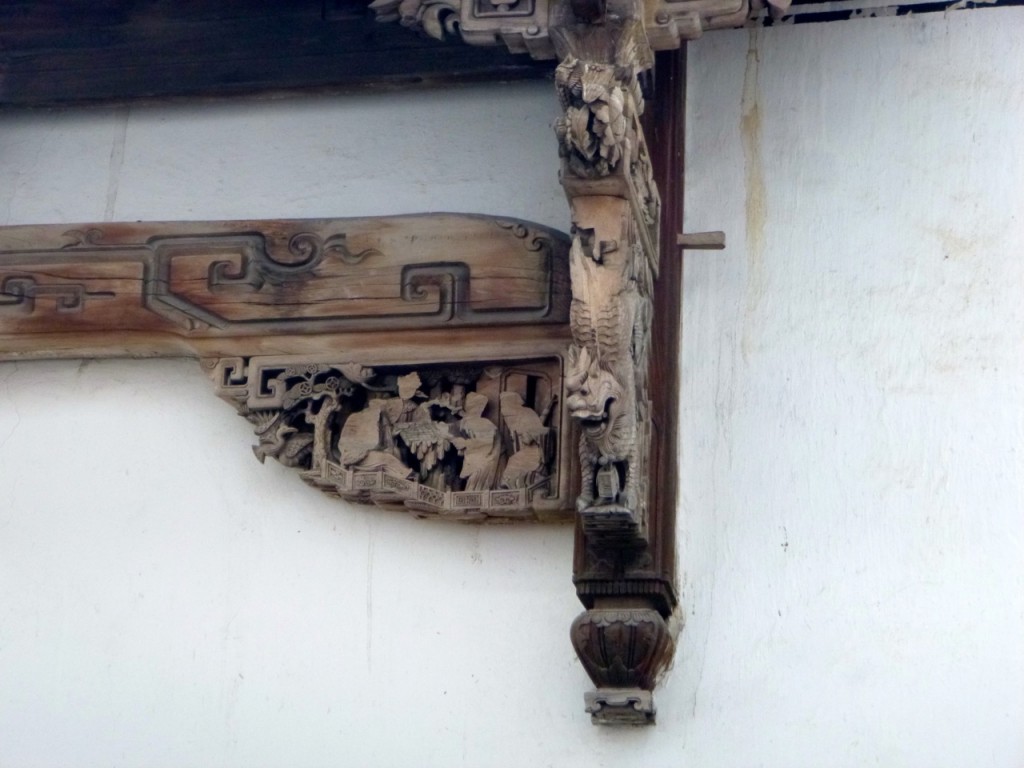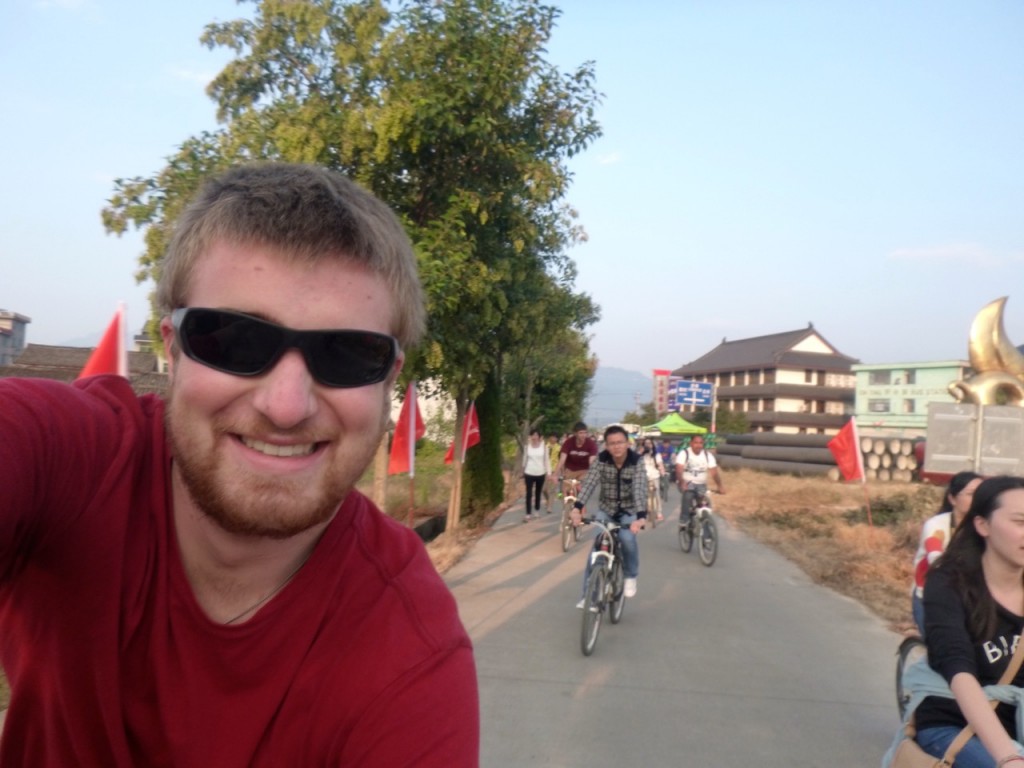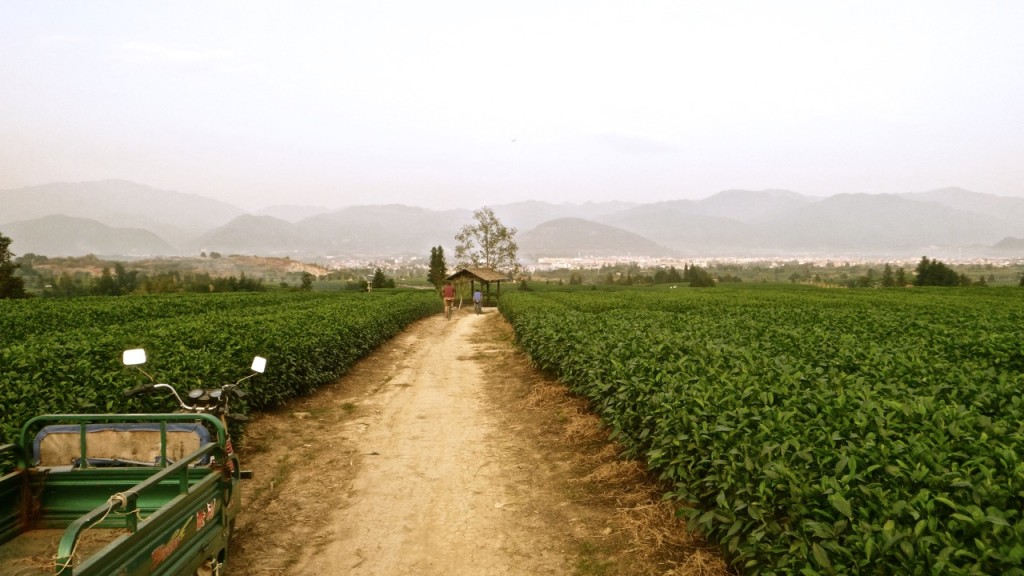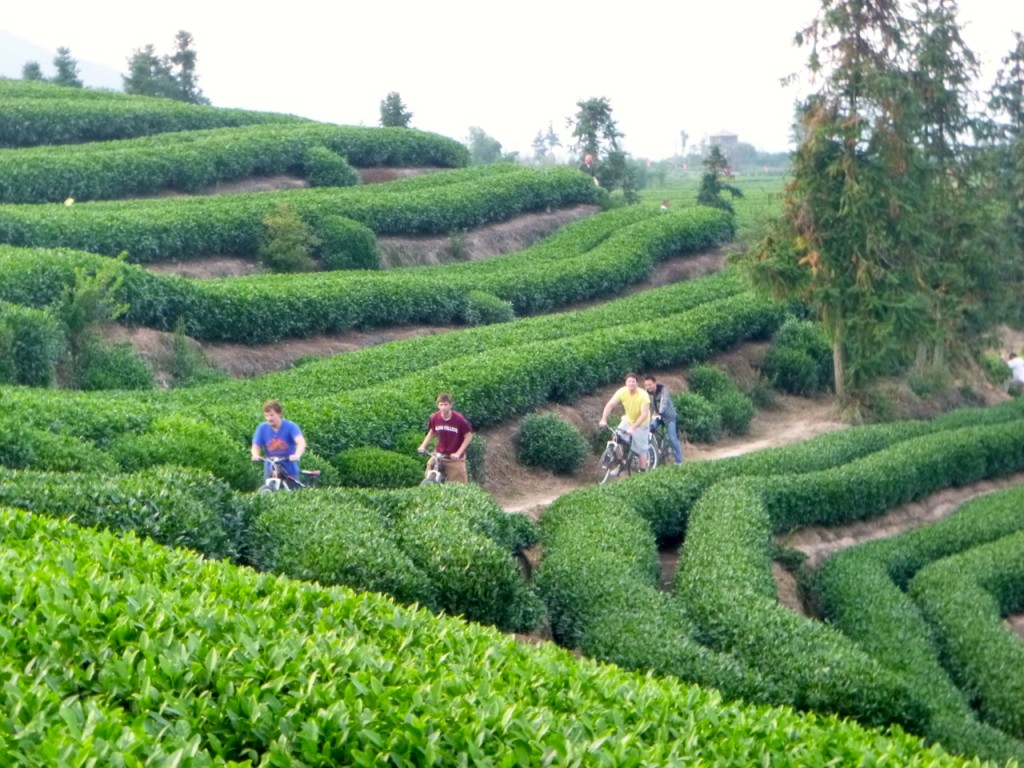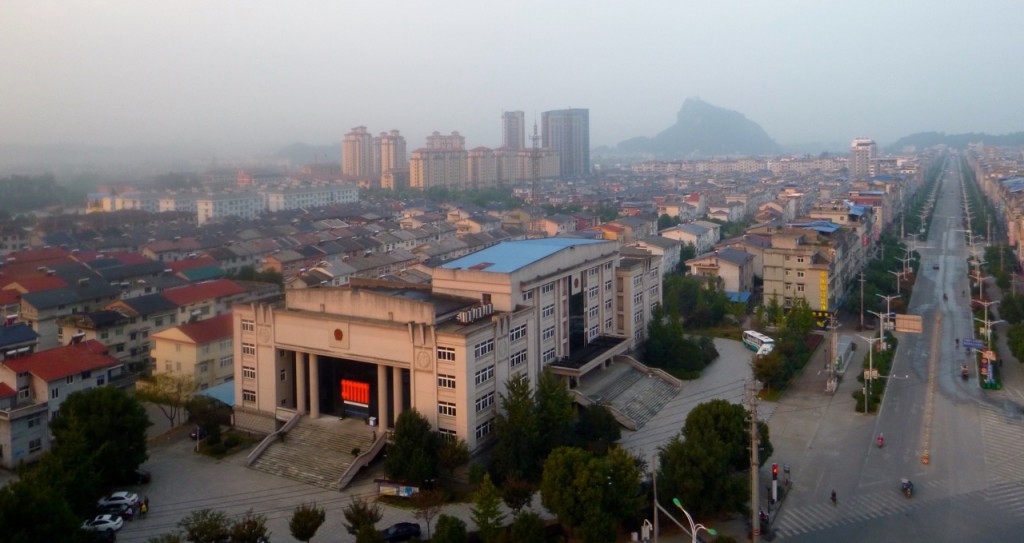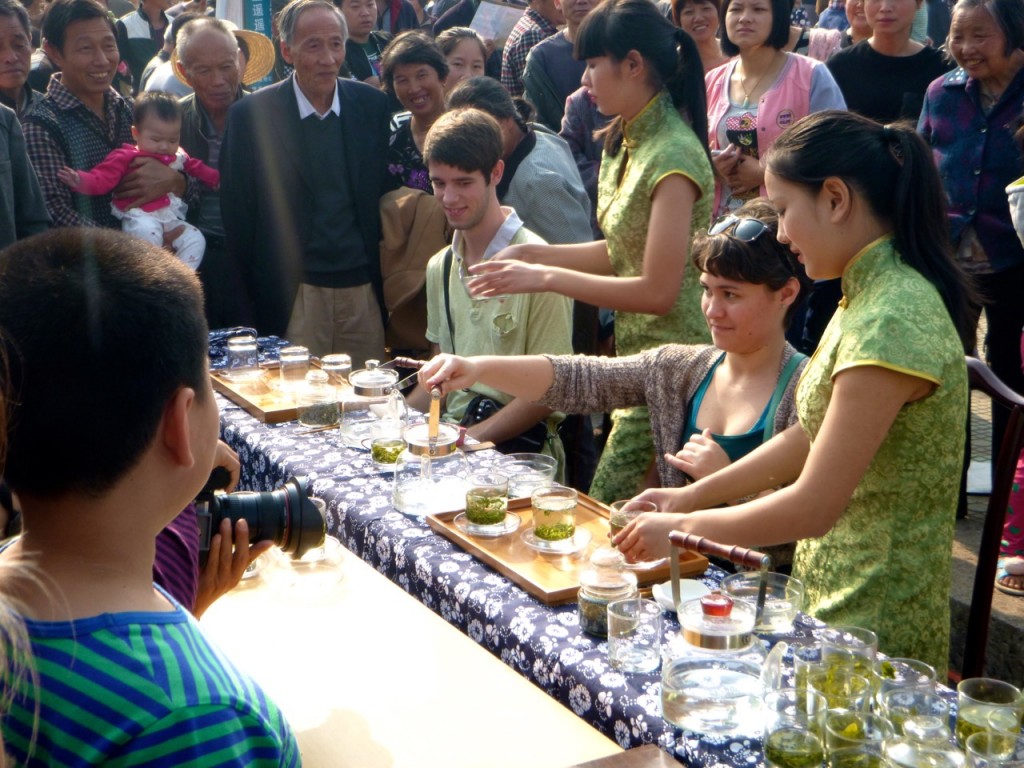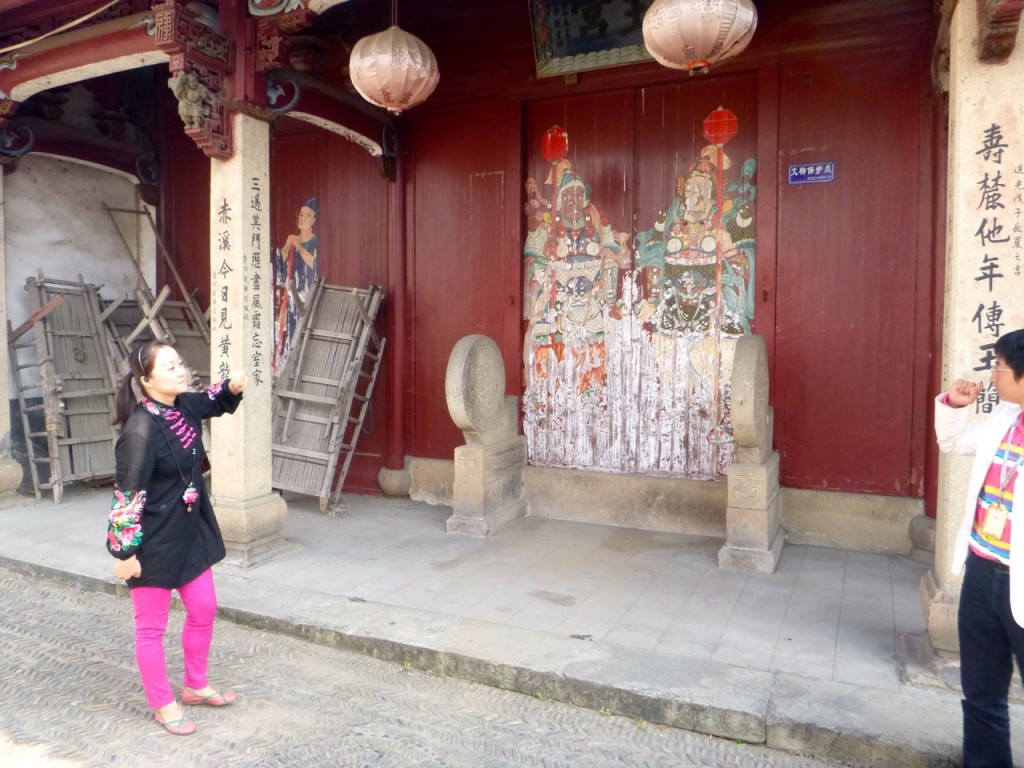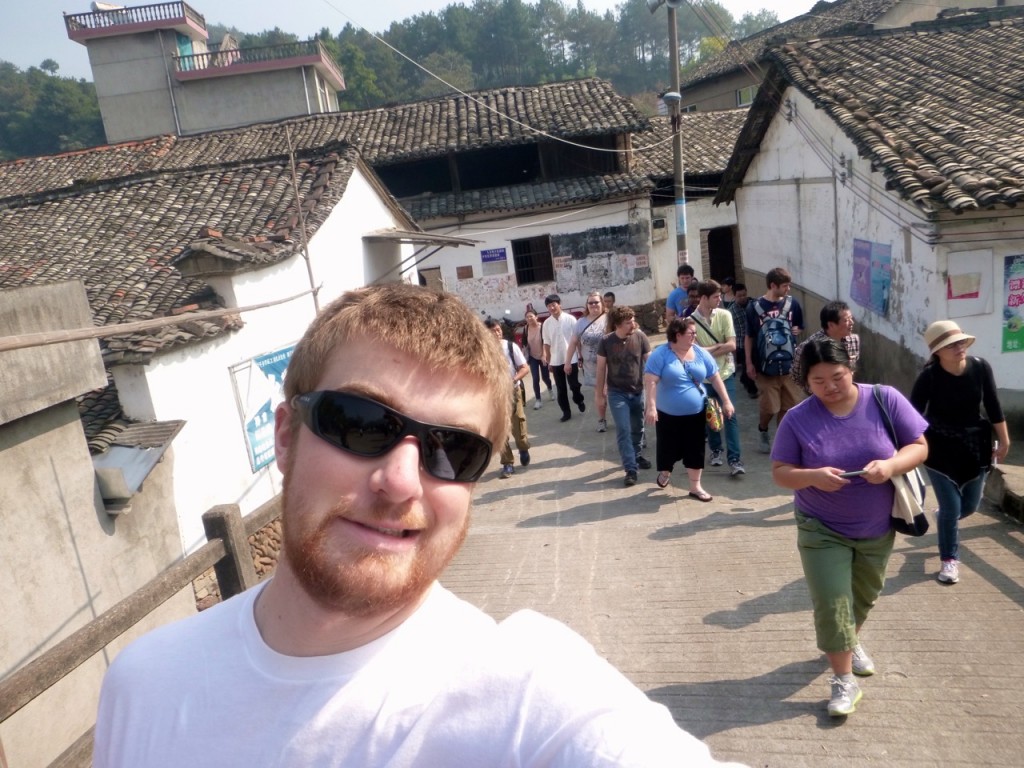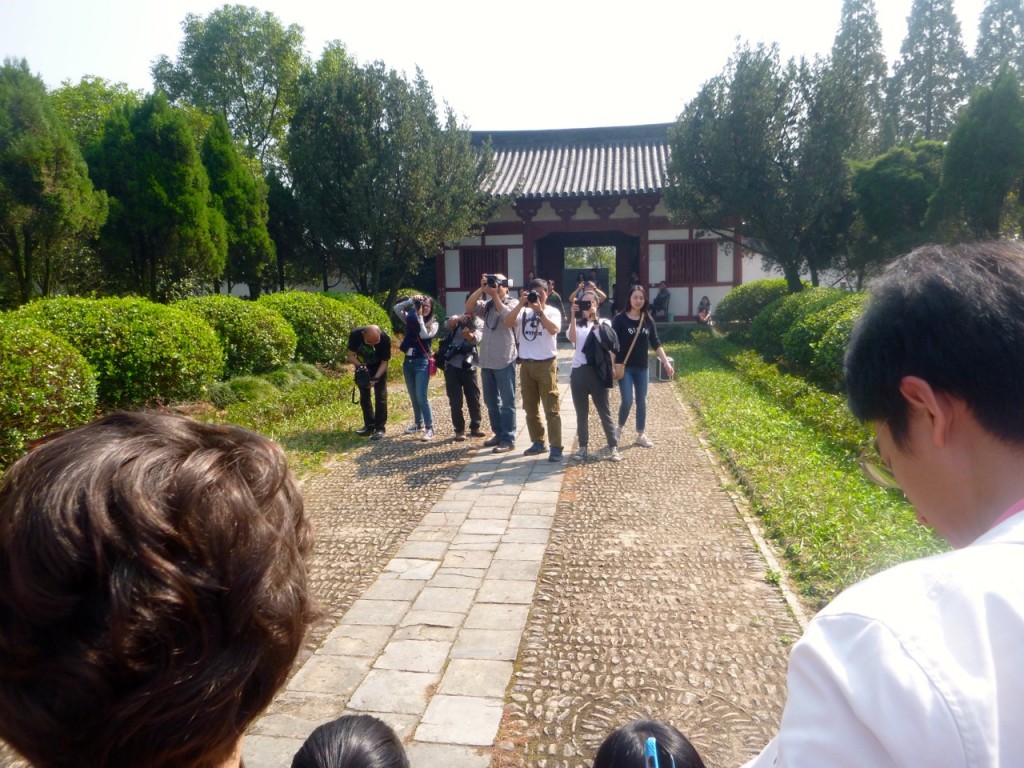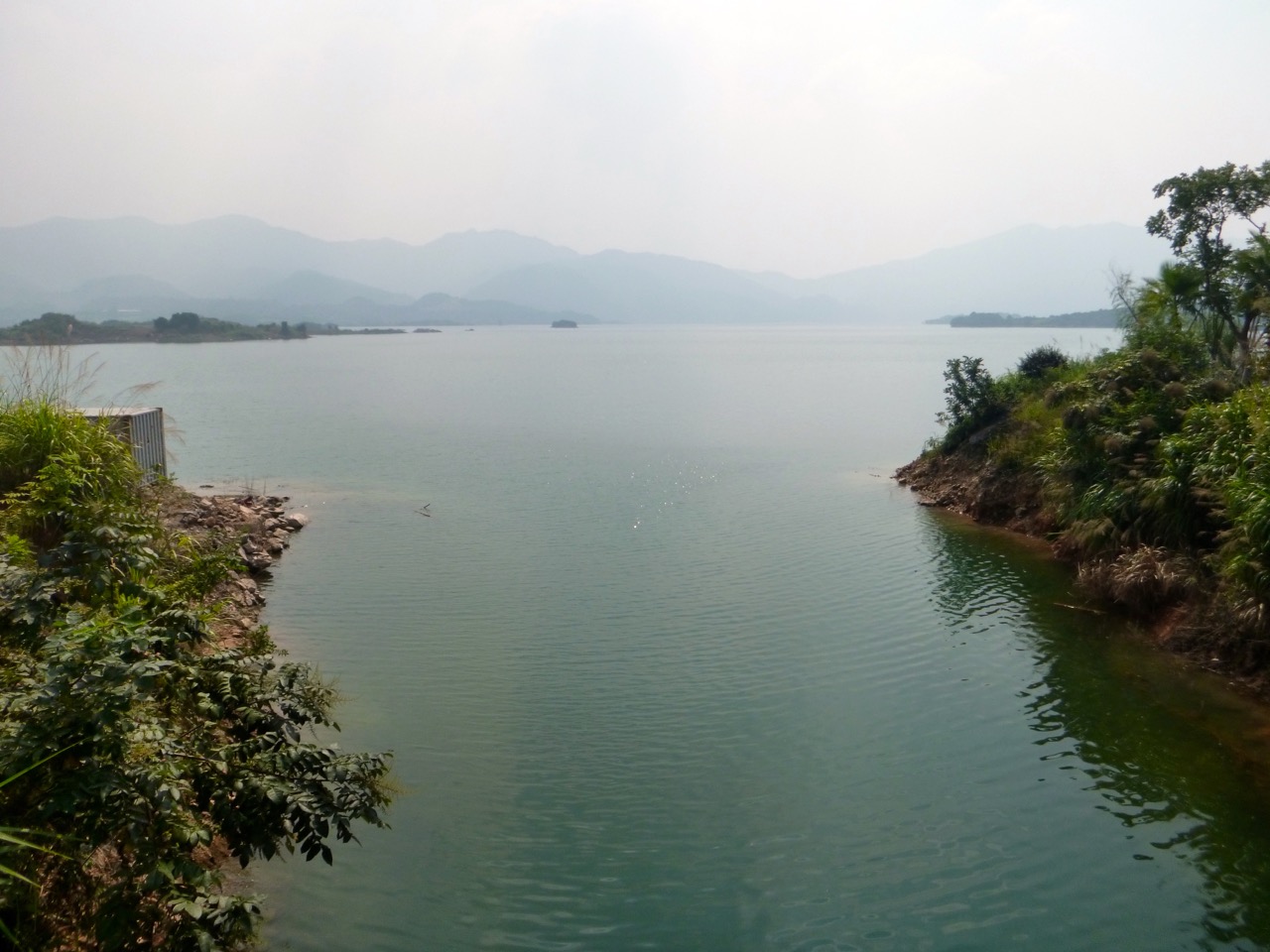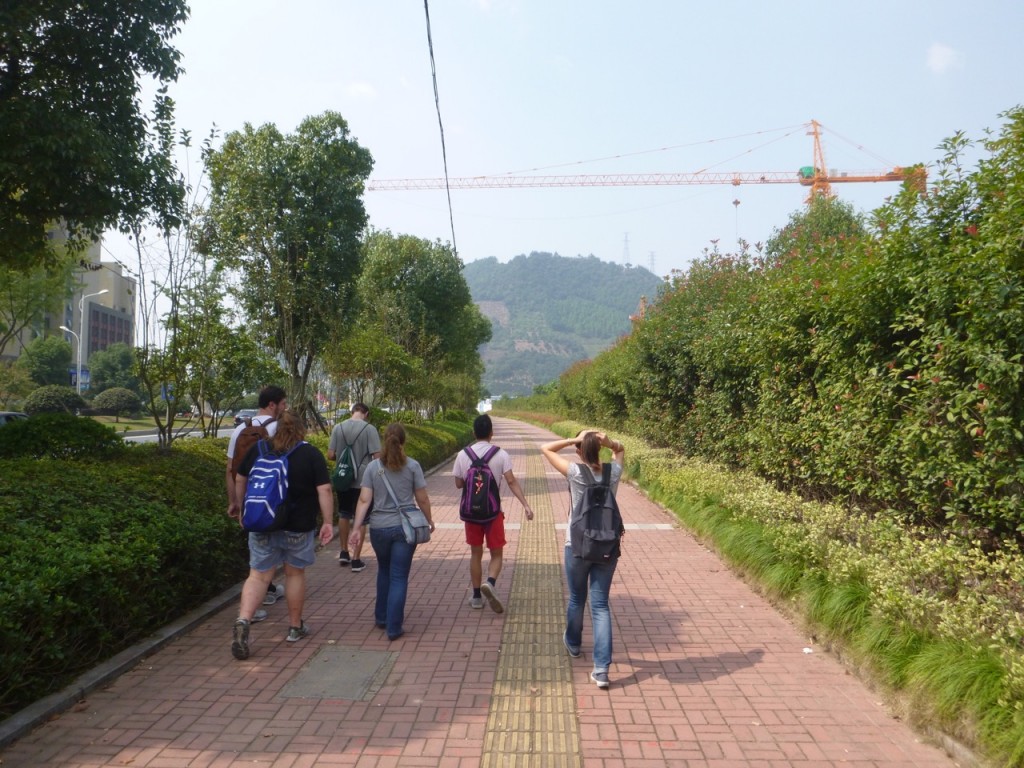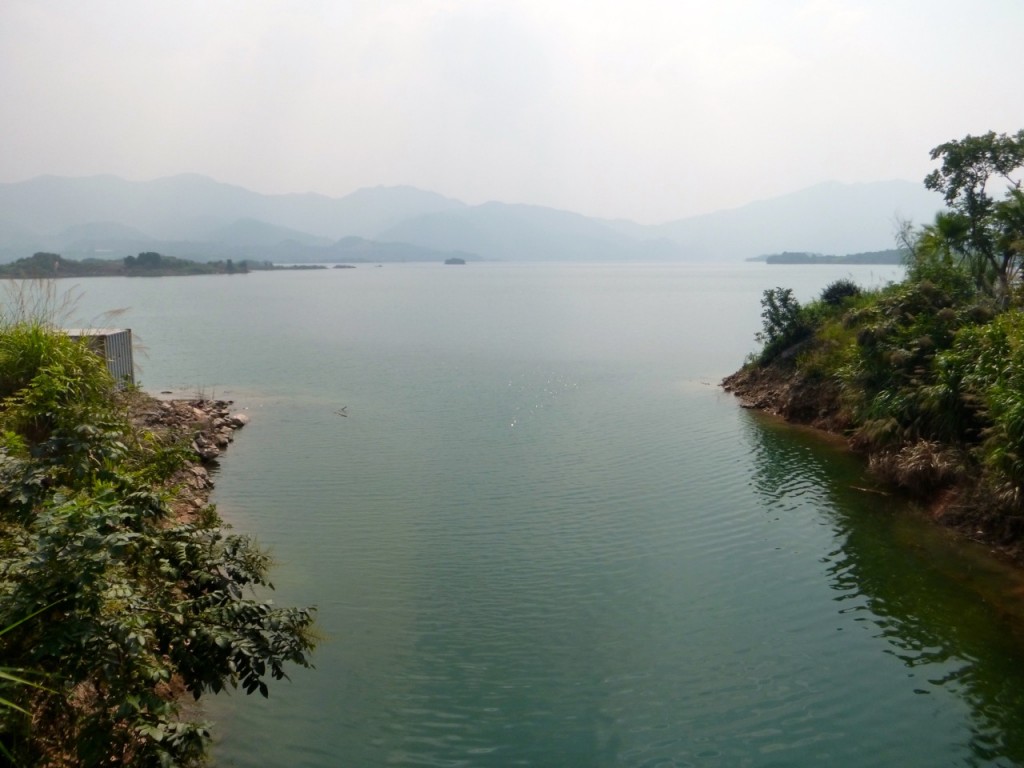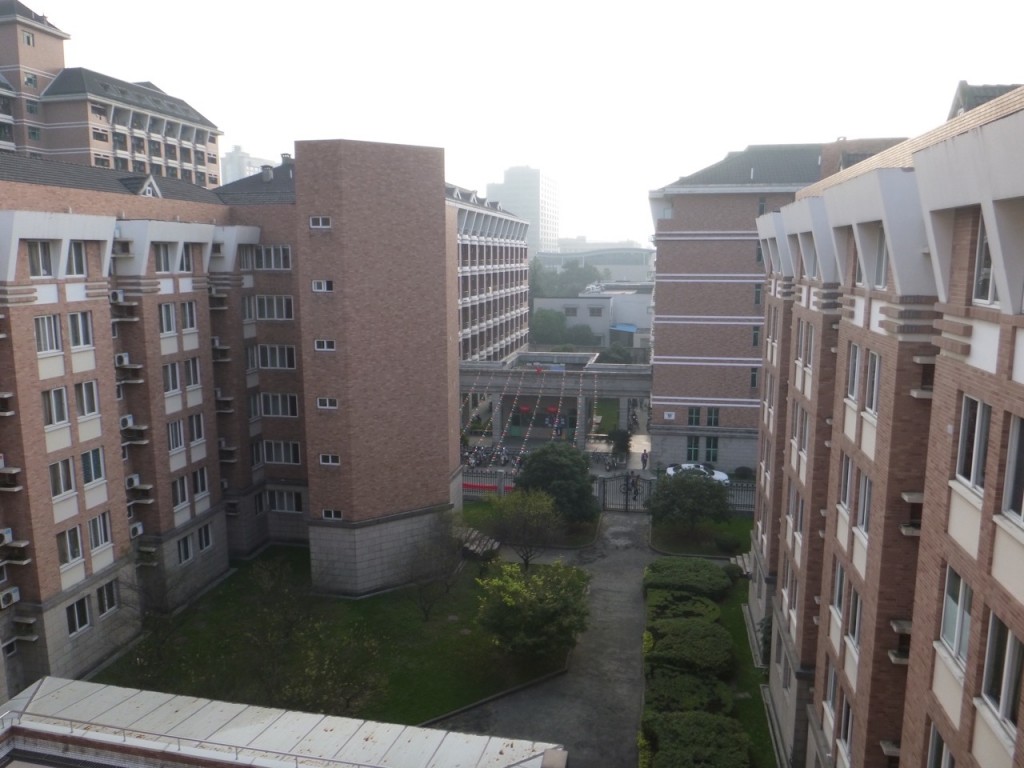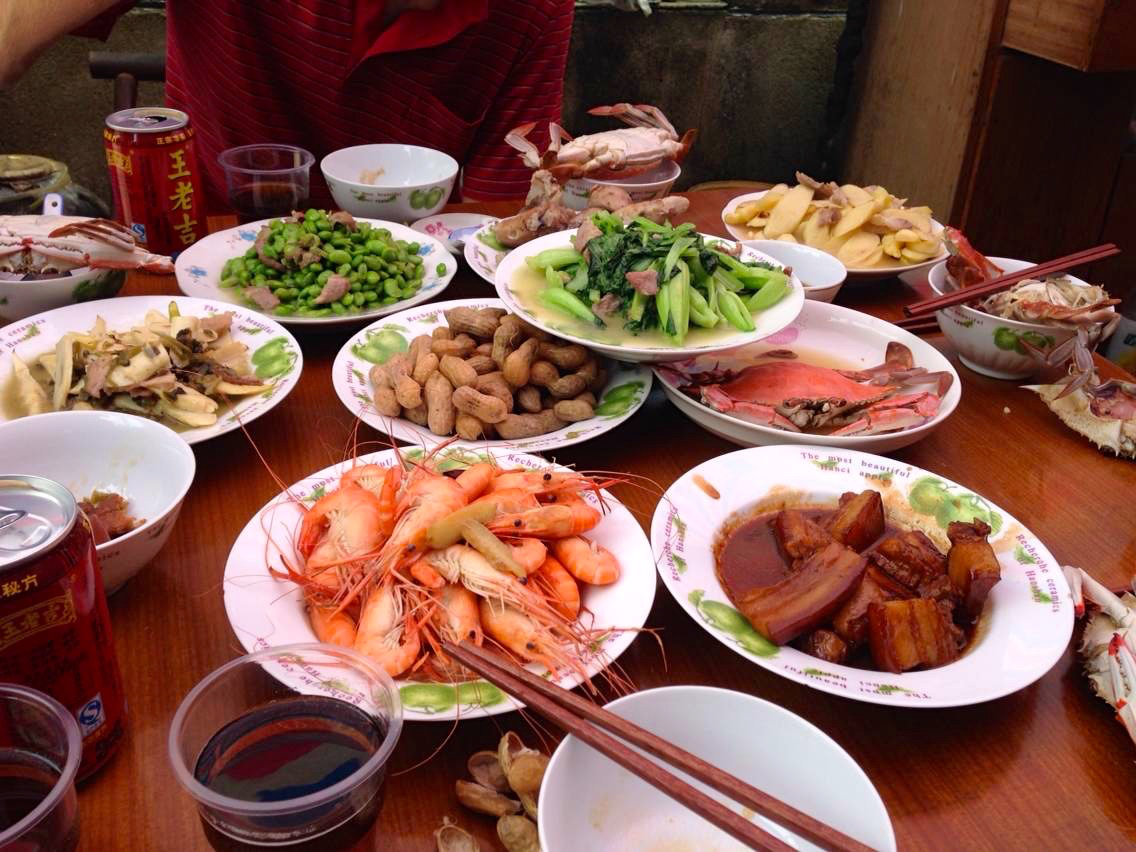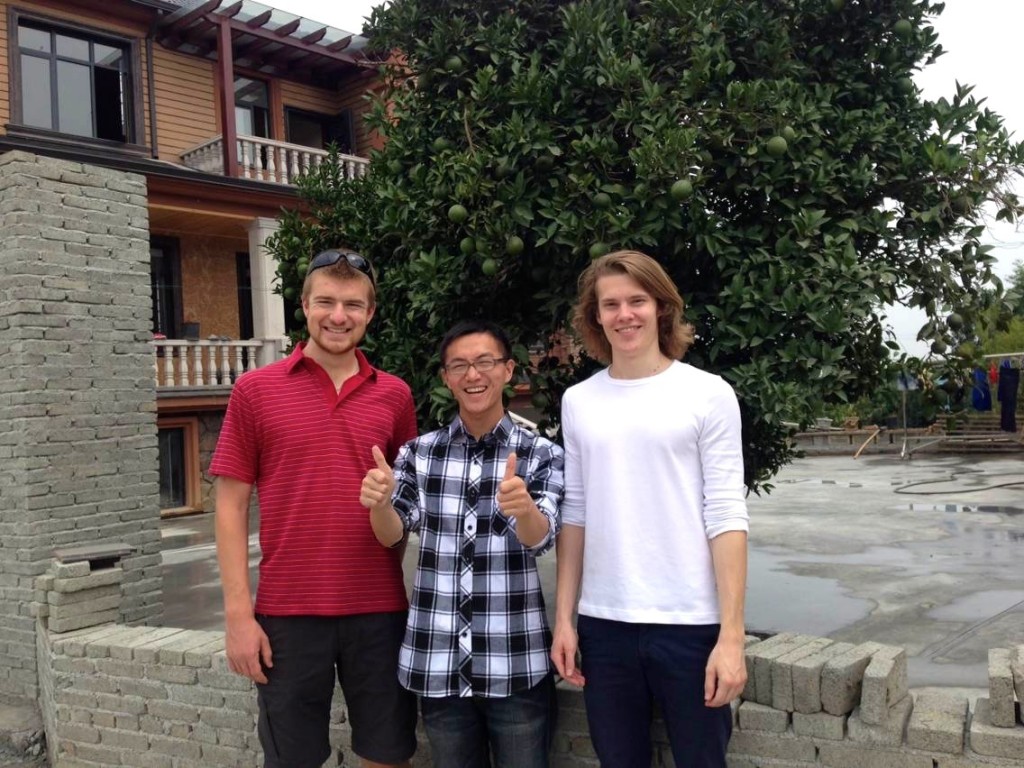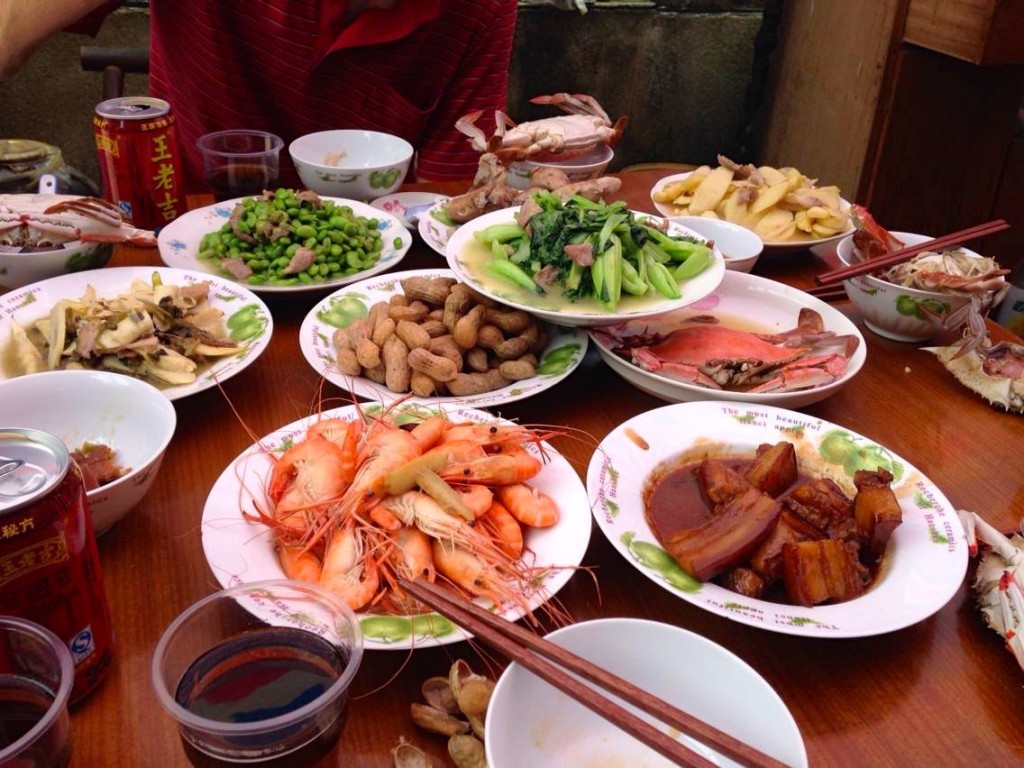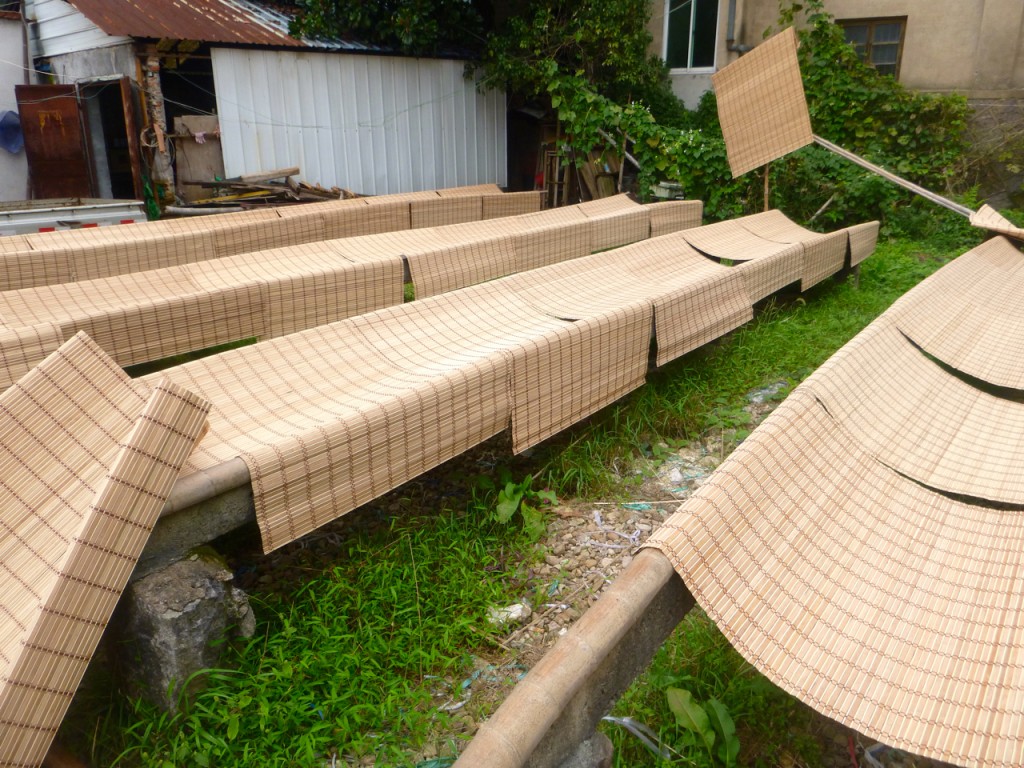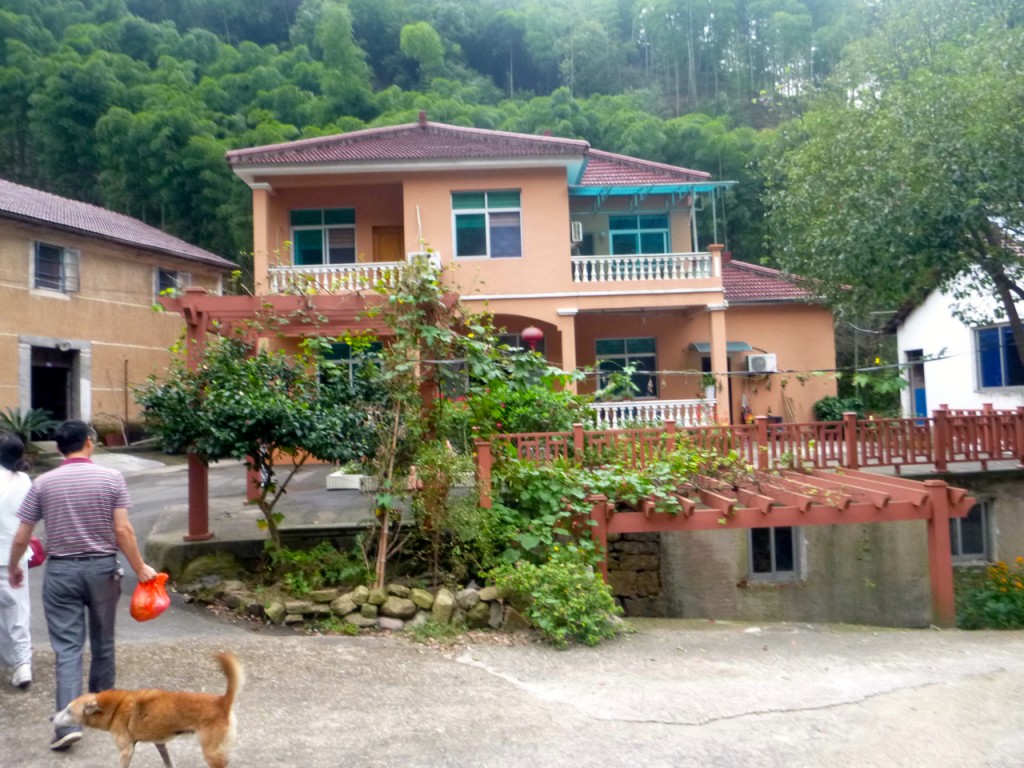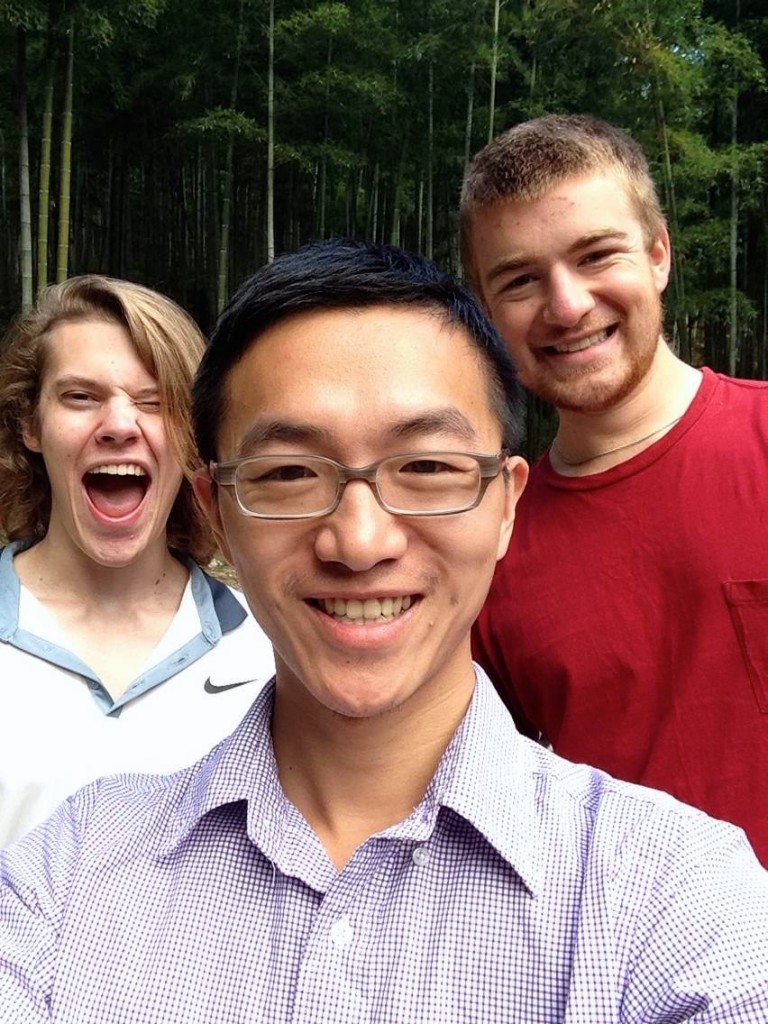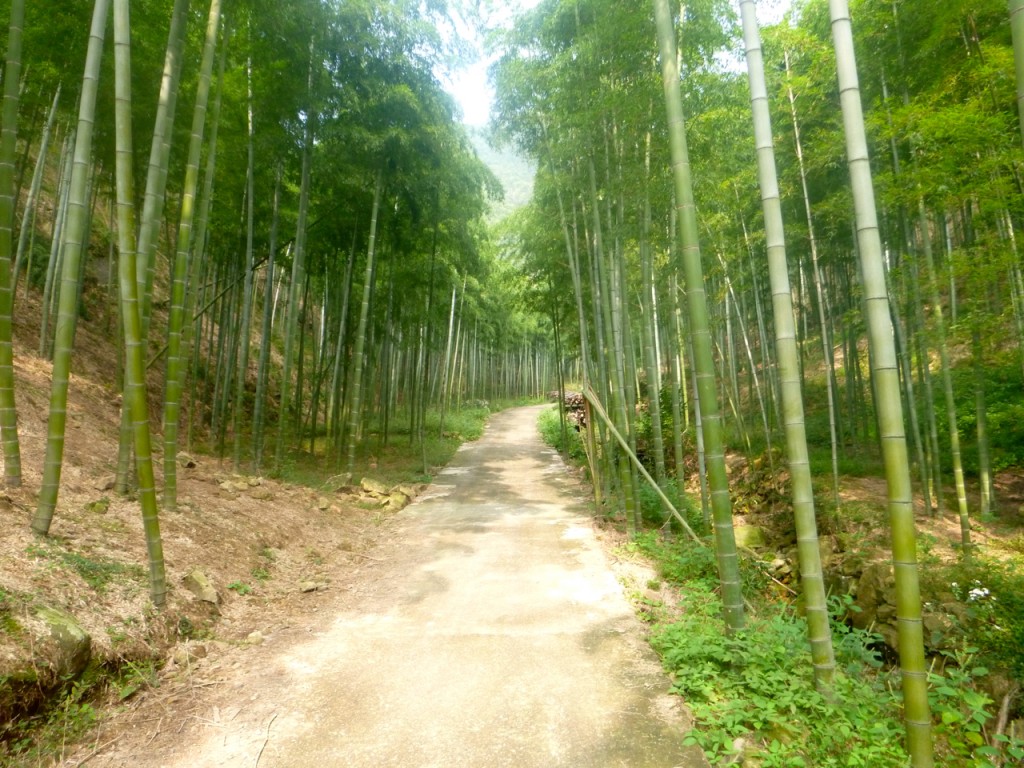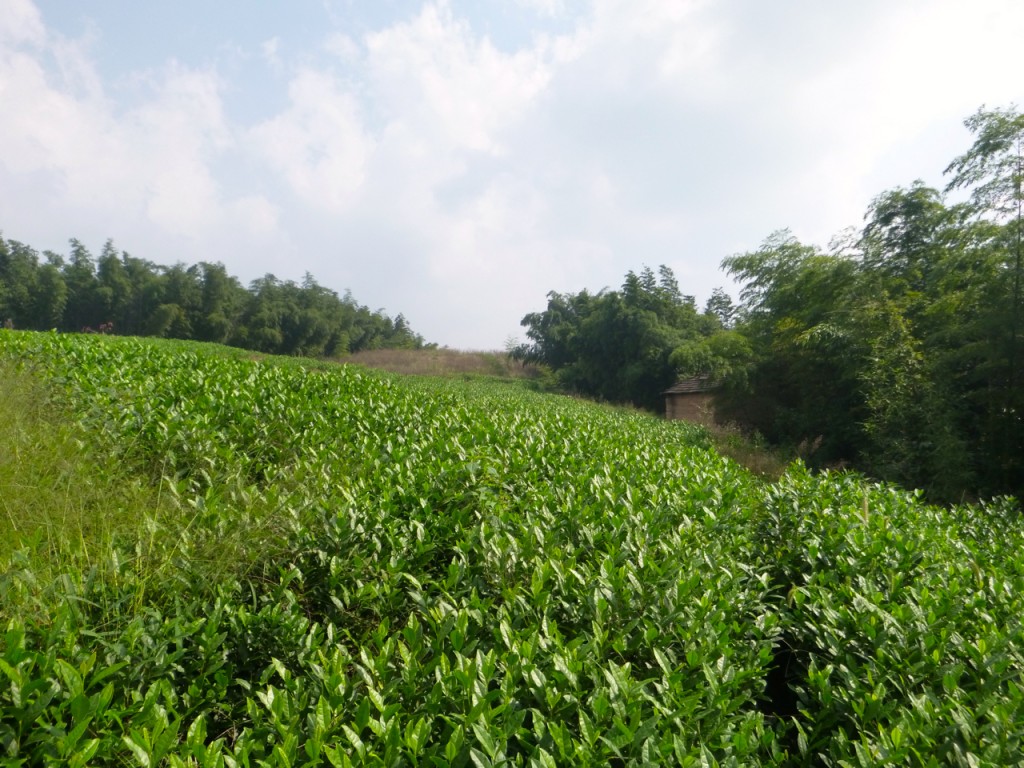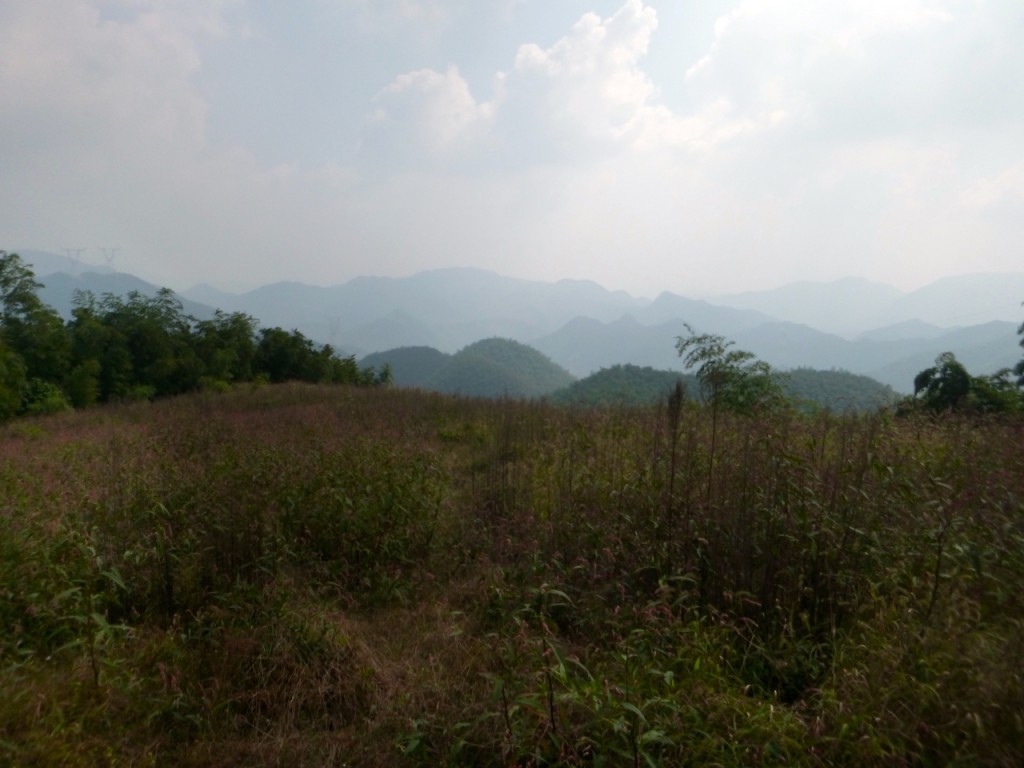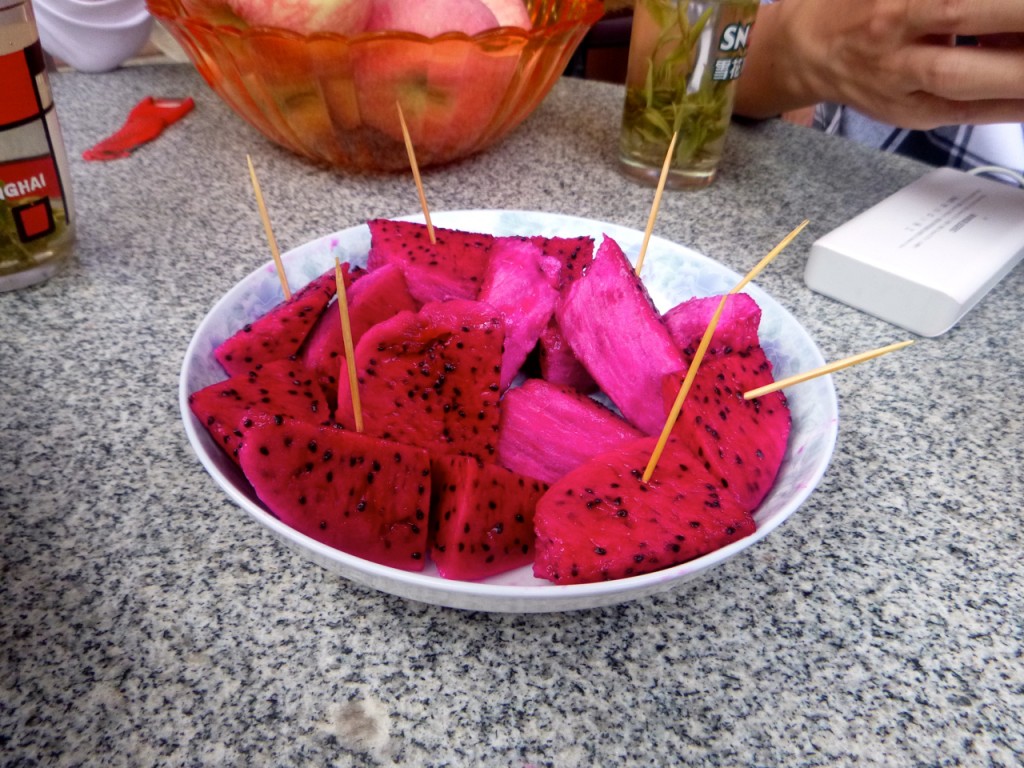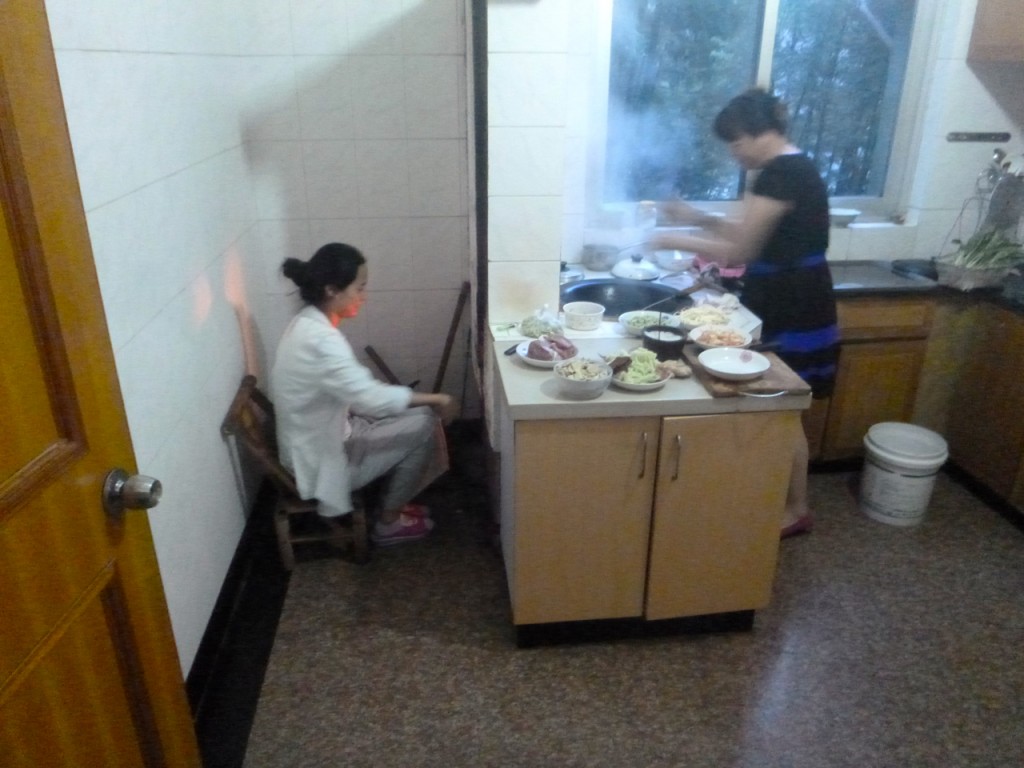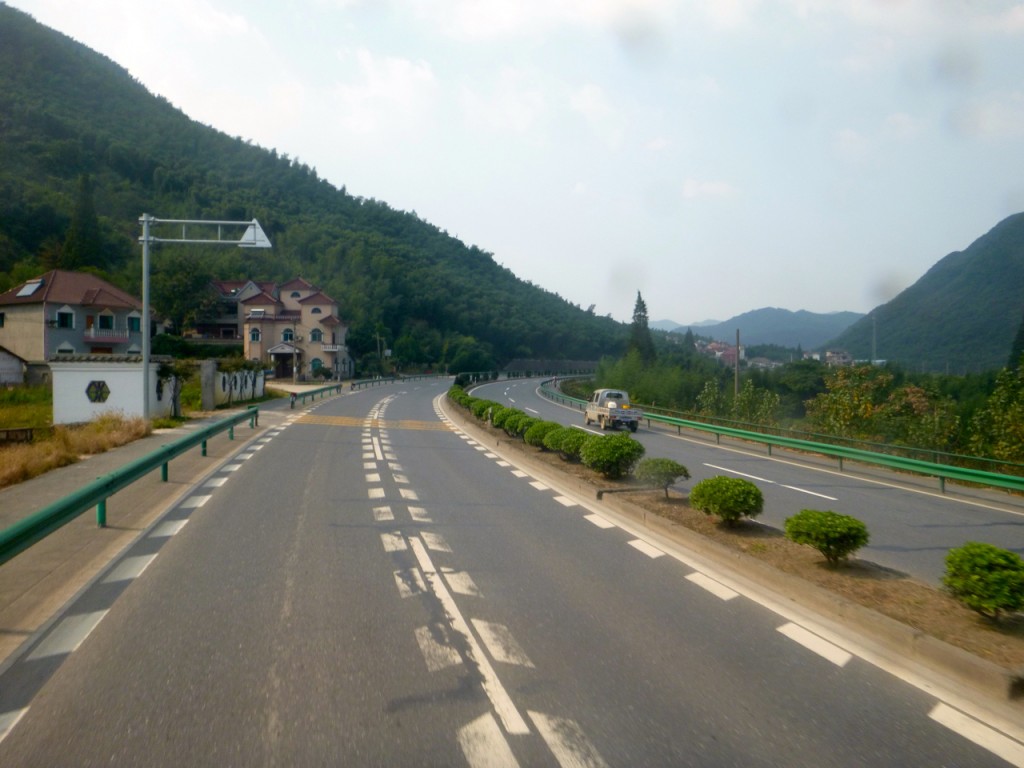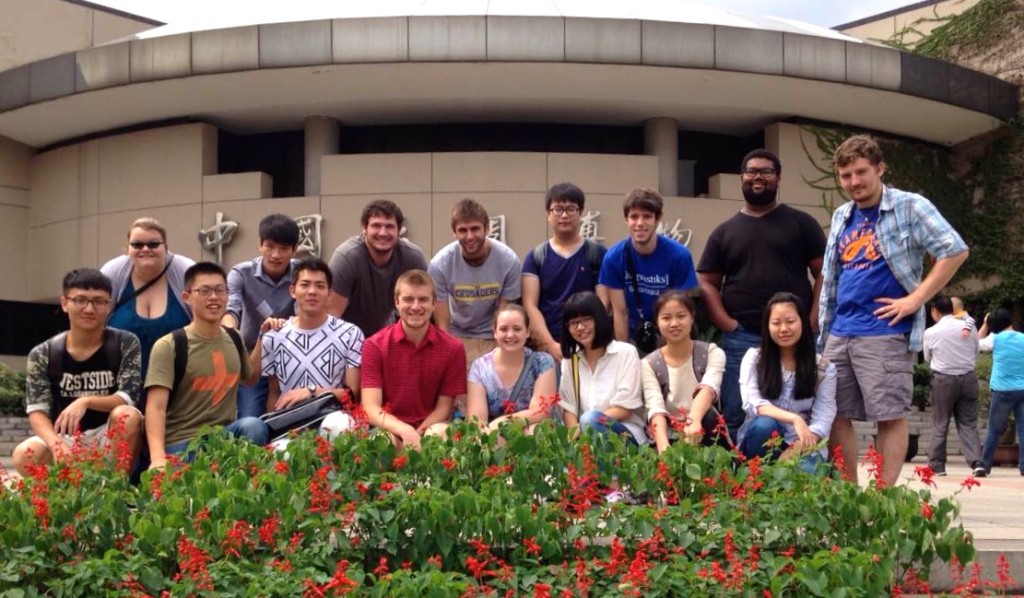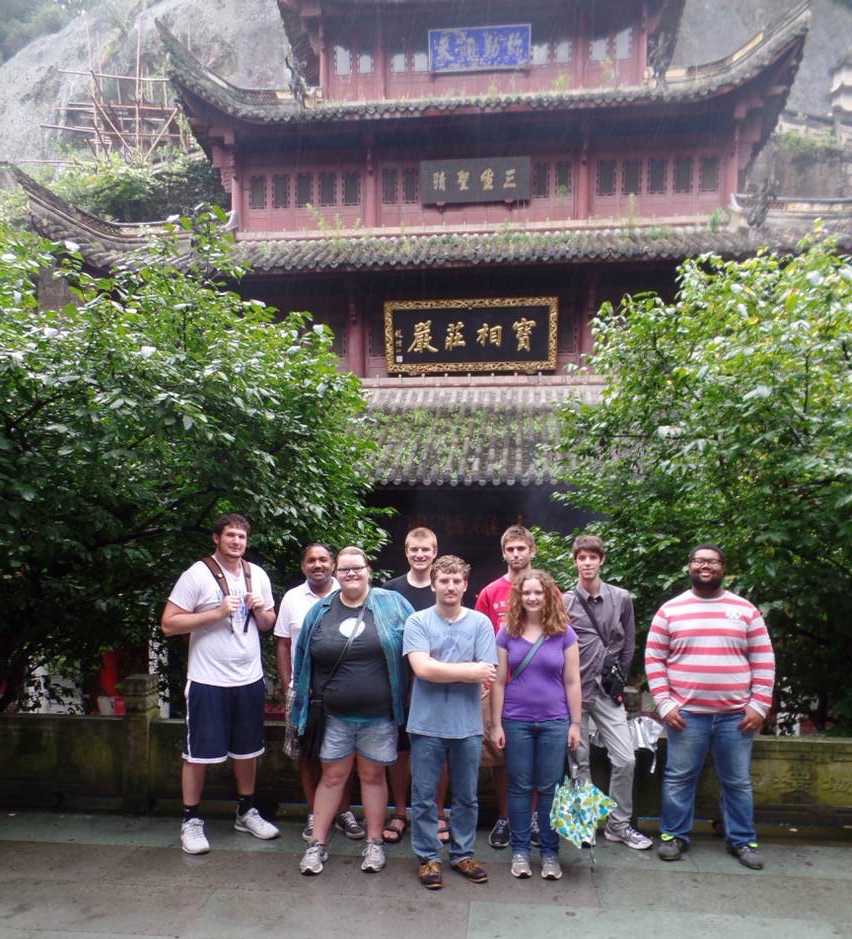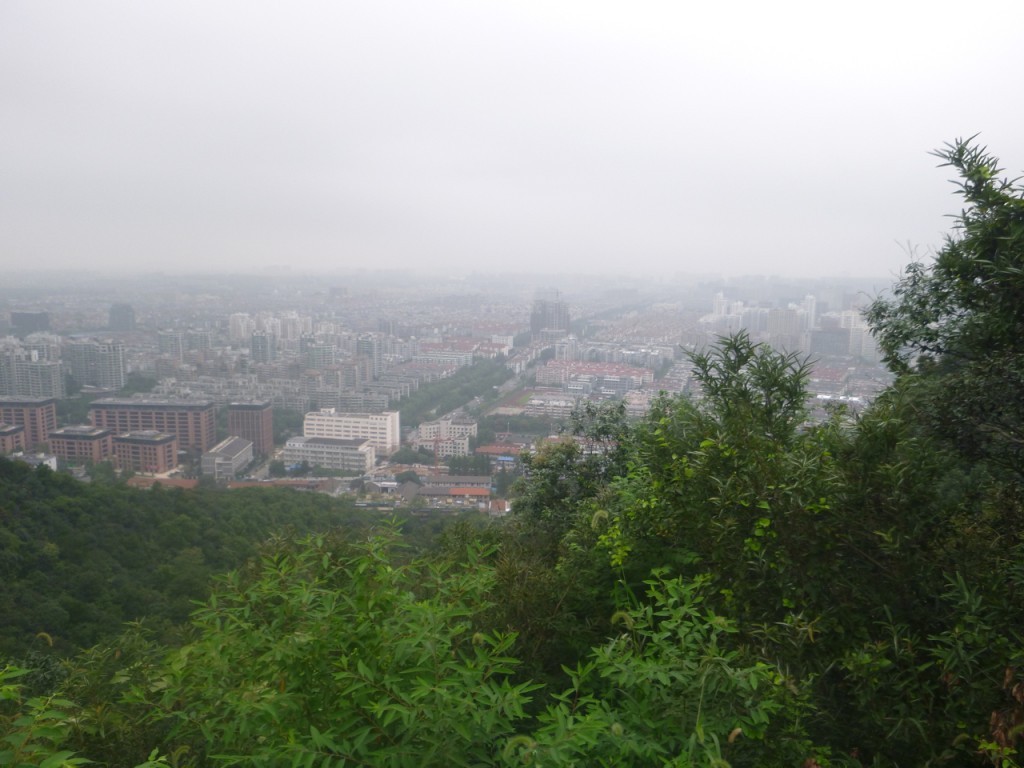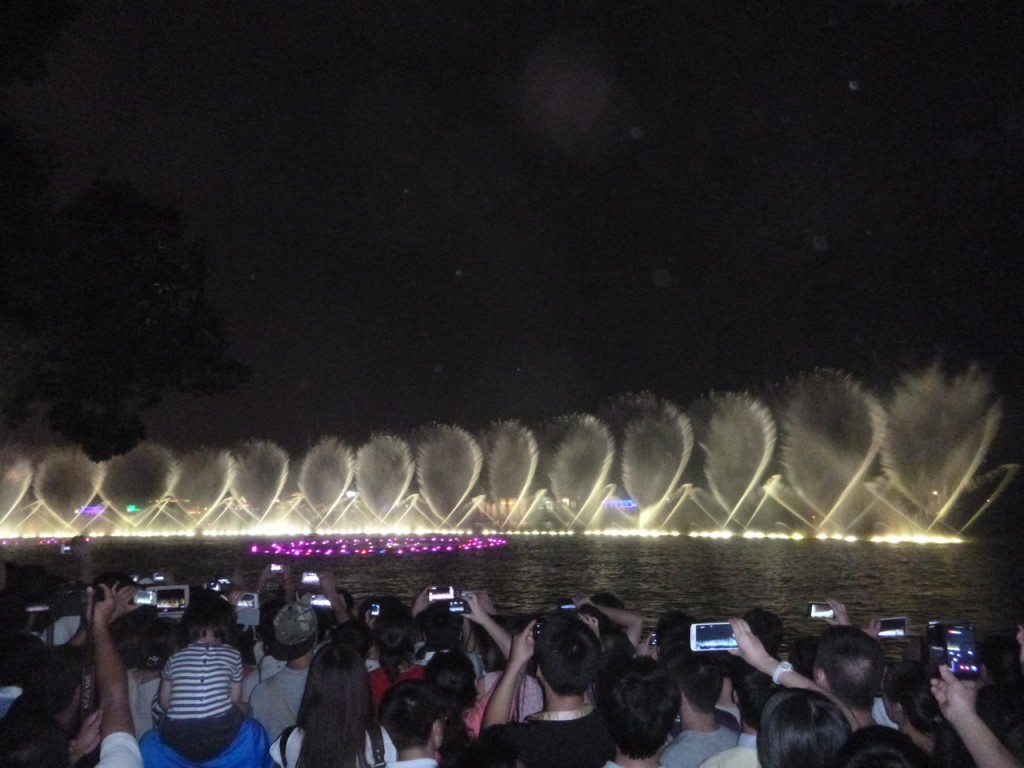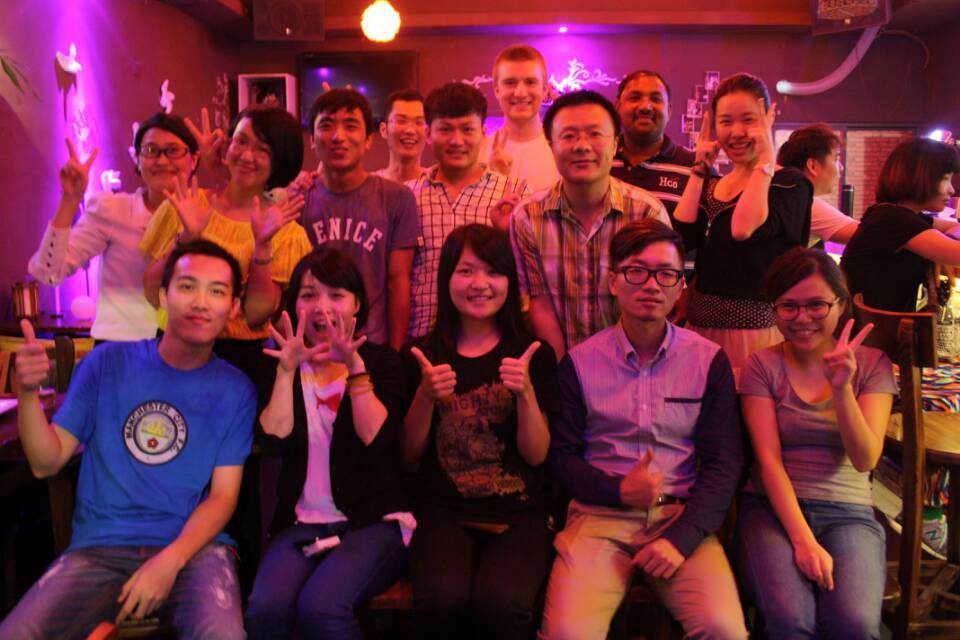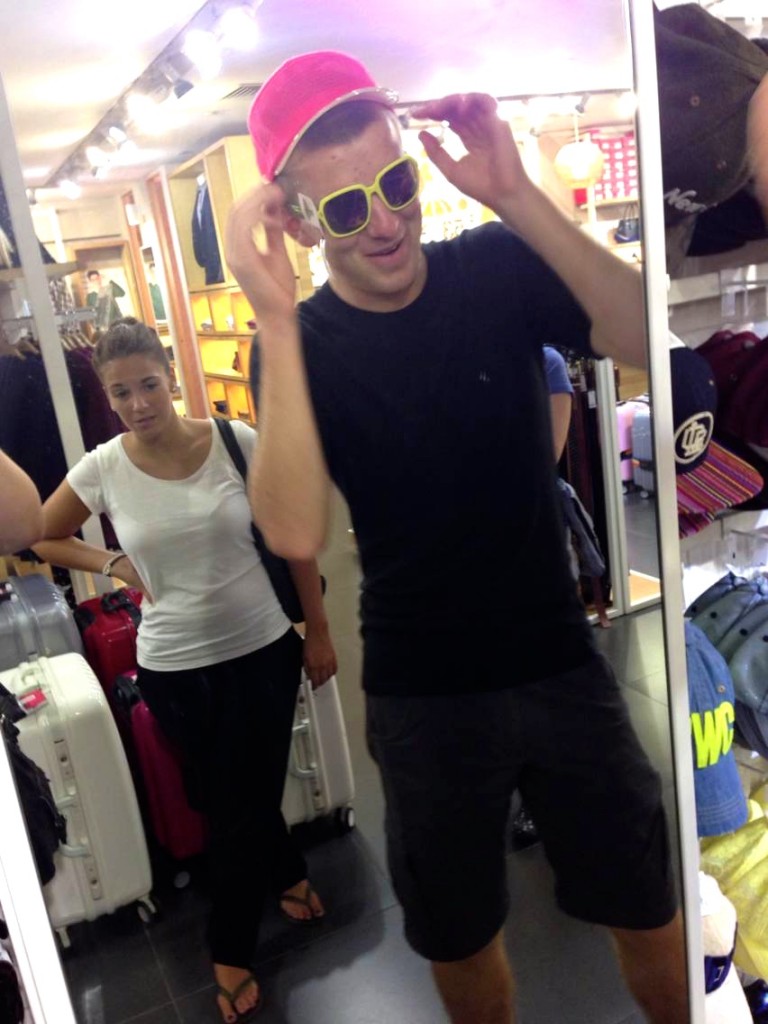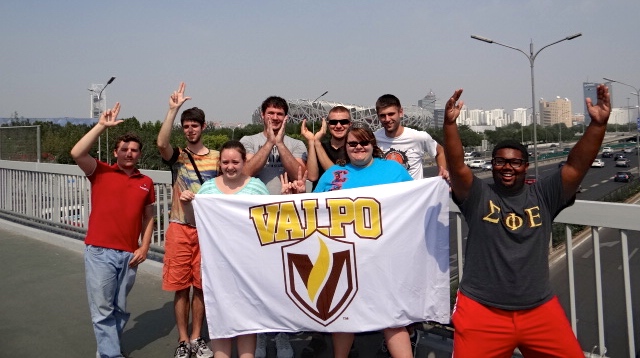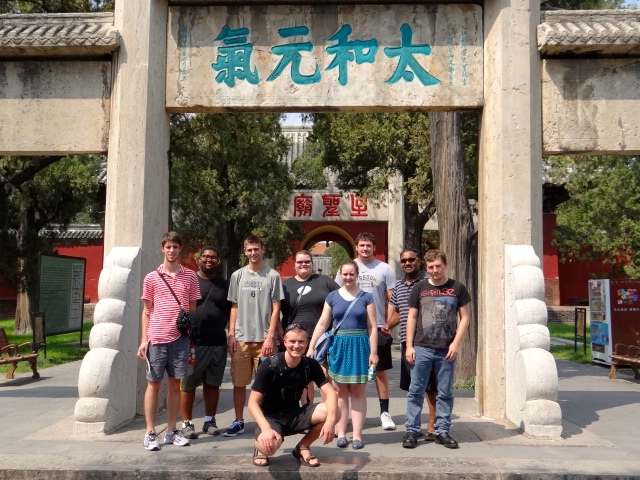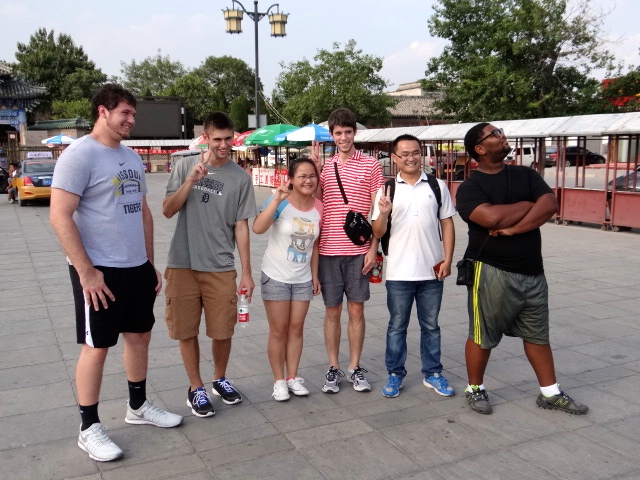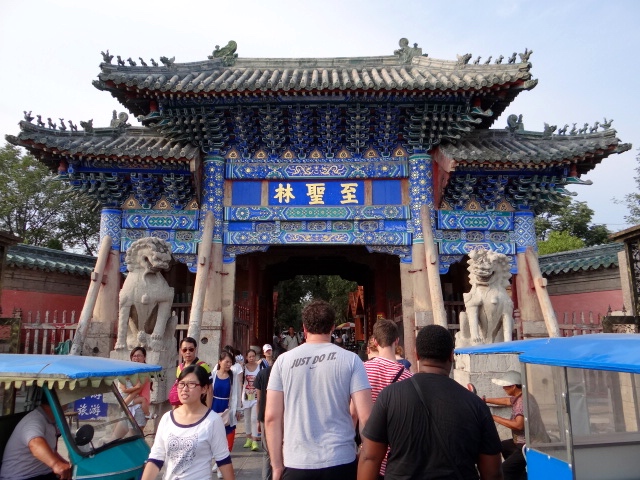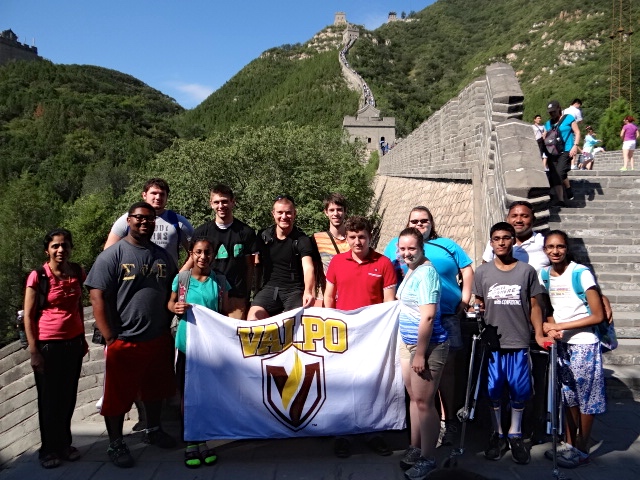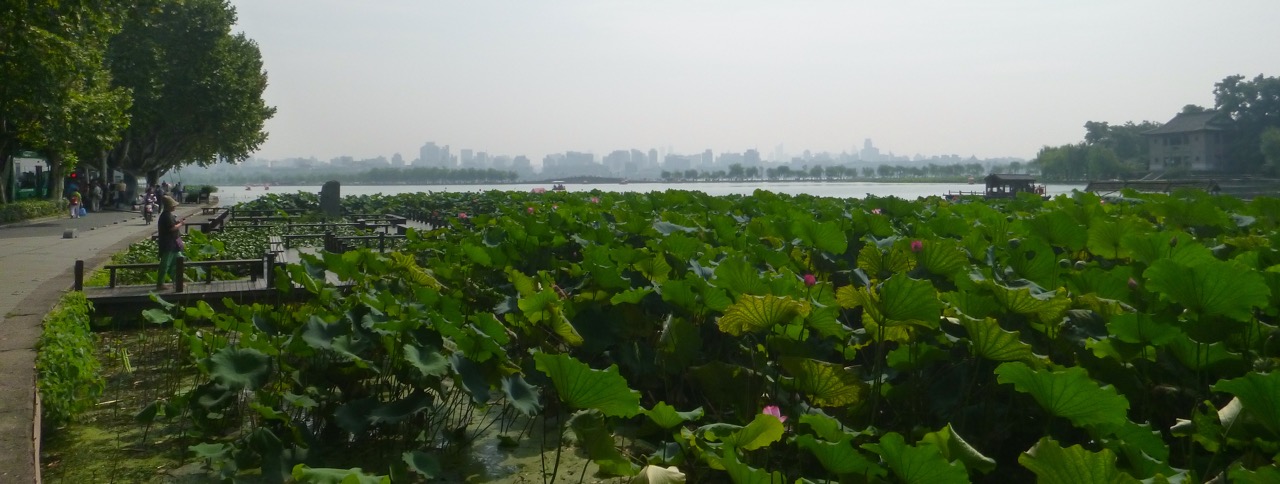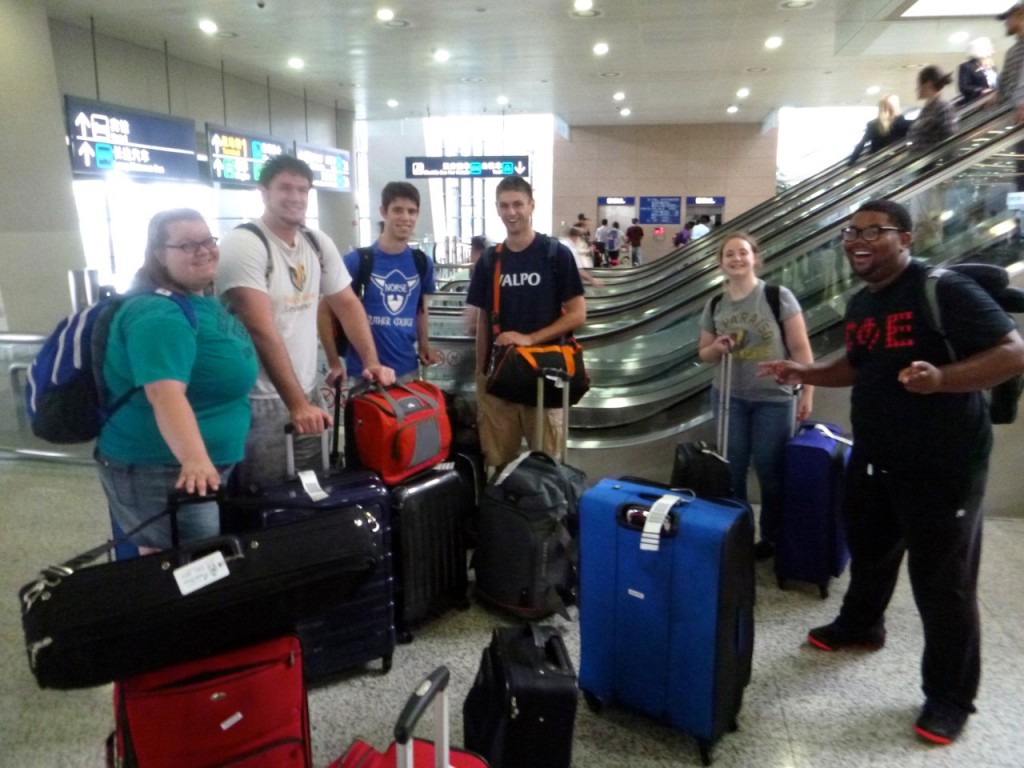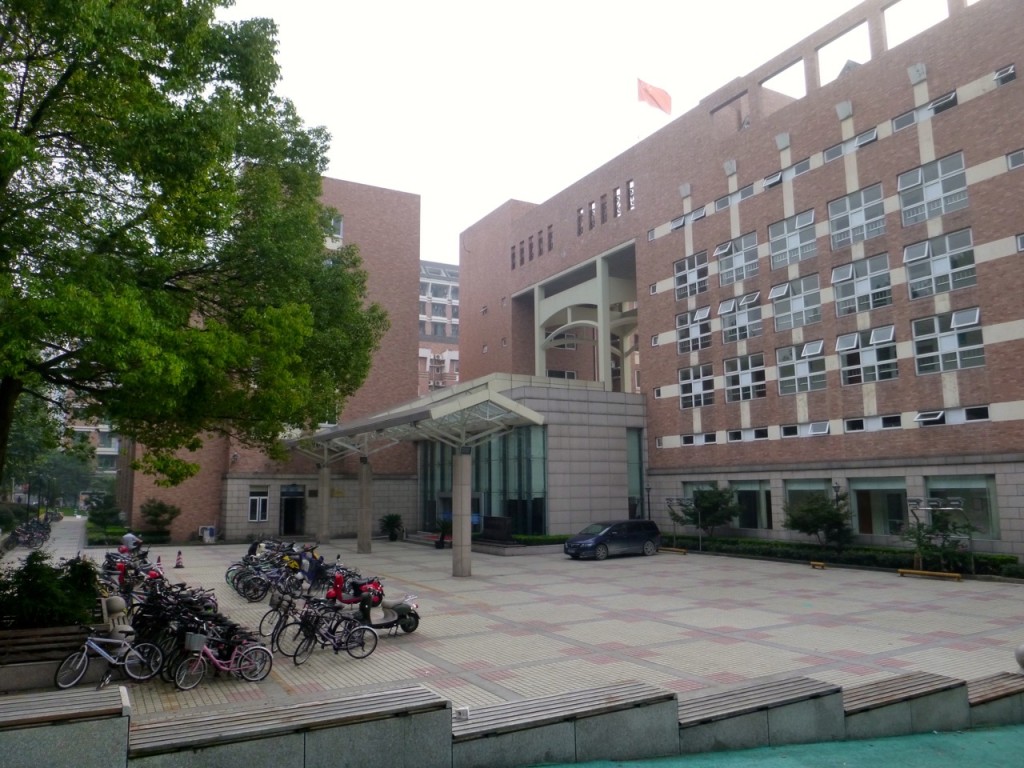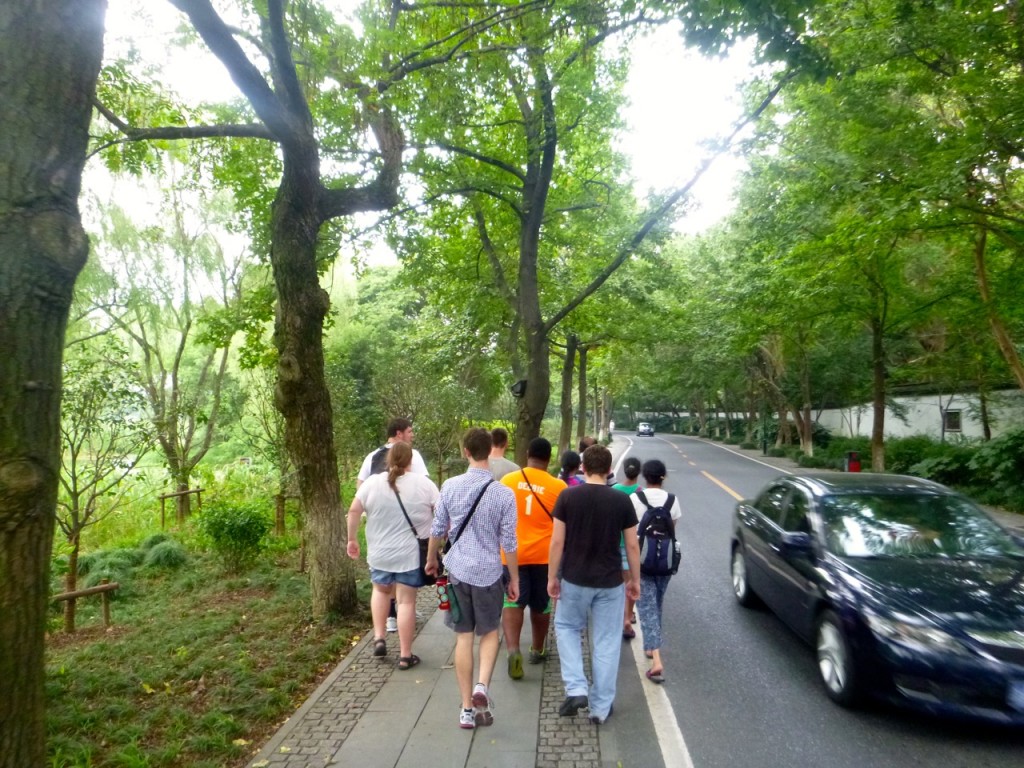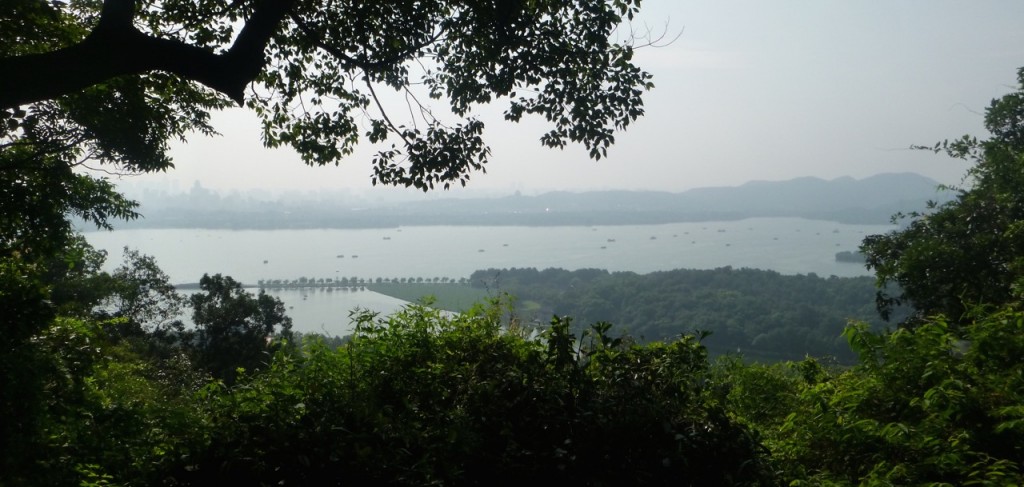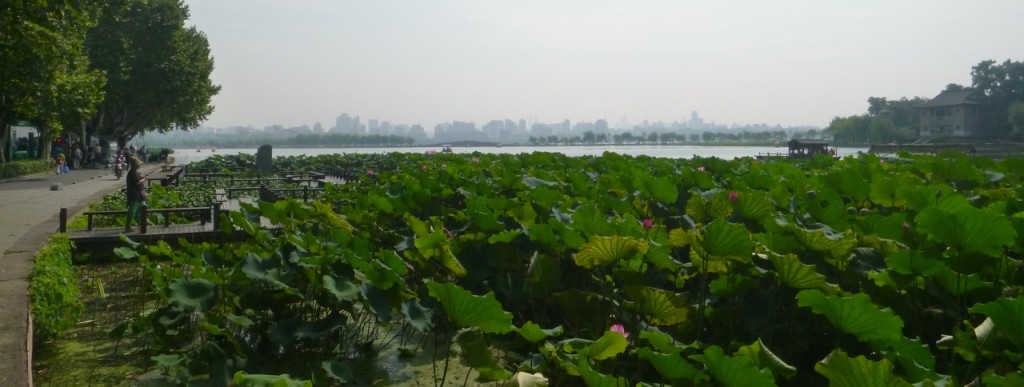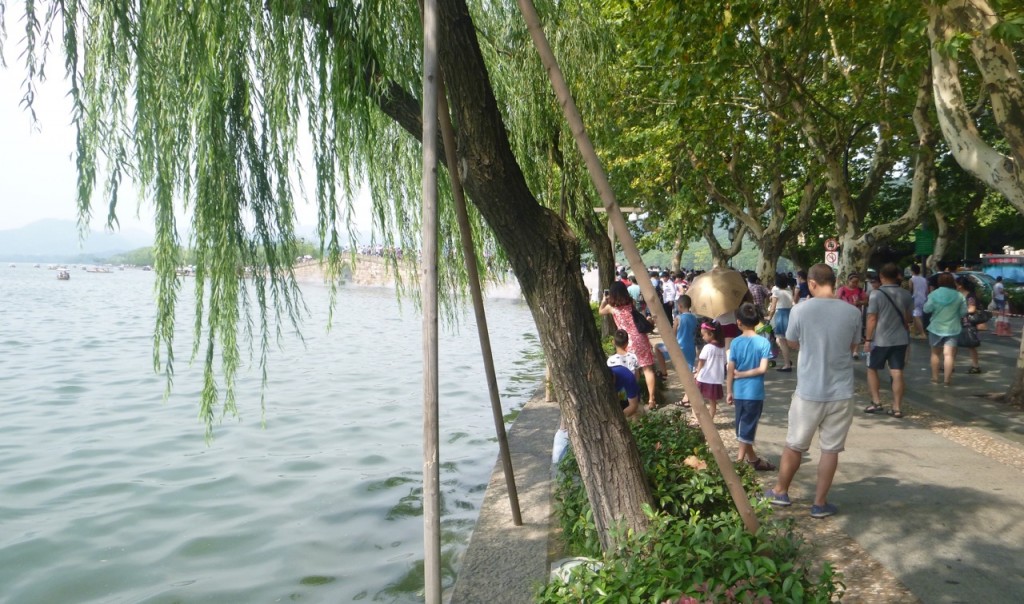Happy China National Day! 65 years ago today the People’s Republic of China was founded. Think of it like 4th of July in the United States.
As a student, China National Day means I get a week off of classes. Although I just started last Tuesday, I’m not complaining.
For someone who is far from gifted when it comes to language, I’d say the Mandarin classes have started off pretty well. My class has just under twenty students, a few of the students are teachers themselves (retired, or in other subjects) and many students are in grad school or have just graduated, I’m one of the youngest. Although we haven’t had a lot of time for conversation it is really neat to be in a class with students from large swaths of the globe—though South America and Africa are notably absent (and seemingly underrepresented in the International College as a whole). The students in my class hail from Indonesia, Japan, Thailand, Vietnam, Sri Lanka, Pakistan, Iran, Yemen, Russia, Ukraine, Bulgaria, Germany, France, Spain, Italy, Portugal, Scotland, and England.
The Russian and Ukrainian are pals and I haven’t got anything worse than friendly greetings from the Pakistani or Yemeni, even though the American government conducts unlawful drone strikes in their countries. It may simply be the type of people study abroad attracts, but I get the impression that we all are far more open to conversation and friendship than reflecting the fractious policies or conflicts of our respective governments.
Our class has developed a sort of bashful good humor as our three Chinese teachers frequently call on us to speak or write on the board, which we often do with great trepidation. At first I found the pace and newness of the language to be staggering but by yesterday I felt as though it had balanced out. That said, we are learning 10-15 new words daily and spend fifteen hours a week in the classroom, so it isn’t far-fetched to believe we may actually learn “a year of Chinese” in eight weeks.
The Chinese teachers also bring their own unique style to class as well. Alex, the speaking teacher, is the most casual of the three and enjoys watching movies or making fun of the Beijing accent’s excessive use of the ‘r’ sound on word endings. He also gets points in my book for the Anonymous wallpaper and Google.com bookmark on his laptop. (Although Google’s services are blocked here, the company’s name is still treated as a verb, and I haven’t heard anyone say “Baidu” or “Bing” it.) Since listening is my worst subject I’m extra luckily that the listening teacher is the nicest of the bunch. The grammar teacher, Ma Laoshi, is strict, but she is still very nice.
Although China National Holiday is one of the most popular times for locals to travel, we still decided to venture out today. (That said, we’ve all rescheduled our travel plans for the week and are staying in Hangzhou because of the steep prices and crowds.) We visited Hefang Street, just south of downtown, which is jammed with eateries and little shops selling jewelry, clothing, and other touristy nicknacks. I wasn’t in a shopping mood, I’d seen many similar items in Beijing or Xi’an. So I tried to make the best out of people watching, and ending up starring in the occasional Chinese tourist photo. Many Chinese who come to Hangzhou during this week aren’t accustom to seeing foreigners so we are get a little celebrity treatment.
At dusk I went for a run in Forest Park just behind campus. It has become my favorite almost daily getaway and takes less than thirty minutes to get to the top and back. Though haze always obscures the horizon, it is a treat to look out on a city of millions from such a forested haven. The hills stretched to the southern horizon, cradling West Lake on their eastern flank, the Xixi wetlands faded into obscurity to the southwest, an office complex covered in photovoltaics stood next to large construction project at the base of the hill while a small fireworks show burst above the apartments.
With the start of classes, the prolonged excitement and newness of China has definitely been dampened for me. Lazy afternoons of wandering around Hangzhou are now replaced by copying Chinese characters and practicing pronunciation. Also gone is the newness of the most obvious cultural differences which initially provided much to ponder and entertain. I am still trying to go to as many ‘English clubs’ as I can. They provide me the best way to interact and get to know the local Chinese—or in the case of last Sunday’s club, a German woman who’d just road tripped from L.A. to Seattle. (We got to talk about Oregon!)
And lastly, as much as I like to follow current events, I’ve spent a growing number of hours in the recent days glued to the BBC’s live coverage of the pro-democracy protests in Hong Kong. Even though I’m hundreds of miles from Hong Kong and except between the international students not even whispers of #OccupyHK have reached me here. (The increased police presence I noticed today is most likely for the holiday and its the proliferation of tourists.) While the BBC has published reports noting Beijing’s heavy hand on the Uighur minority and violence in Xinjiang, the scale and coverage of Hong Kong’s protests has the potential to be a defining moment for years to come. I’ve found it disheartening that among my Valpo peers there is so much seeming apathy—especially when we hail from a country that is supposed to be emblematic of freedom and democracy. (Though it shouldn’t be a surprise, I’ve known about the general public’s political apathy since starting debate in high school.) While China sensors Weibo terms, blocks Instagram and publishes almost comically skewed views of the Occupy protests I’ve been thrilled by the amazing teamwork and civility of the Hong Kongers. While the BBC and western media may clearly highlight the best of the protestors, I haven’t read anything to suggest that they’ve done anything worse than protest—the economic and stability harm argument is weak. For perspective, Hangzhou, one of the nicest cities in China, often can’t keep its streets clean (even with a near army of public servants) and meanwhile the protesters collect their own recycling and trash! Being in China makes following the protests all the more exciting, especially given the entrenched stances of both sides. Two years after the violent protests of the Arab Spring it is hard not to whole-heartedly root for a group with such a strong claim to the moral high ground after Sunday’s teargassing. #UmbrellaRevolution
written on October 1st, 2014
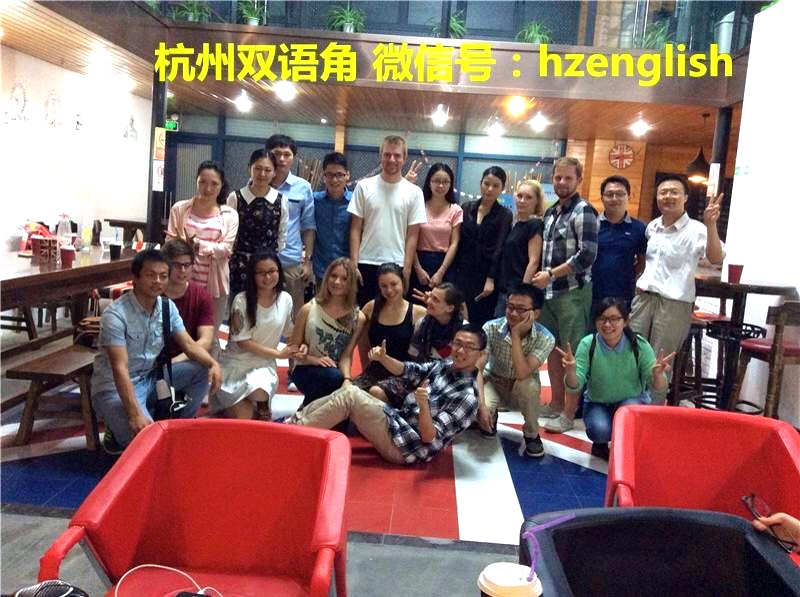
Sunday night’s English club
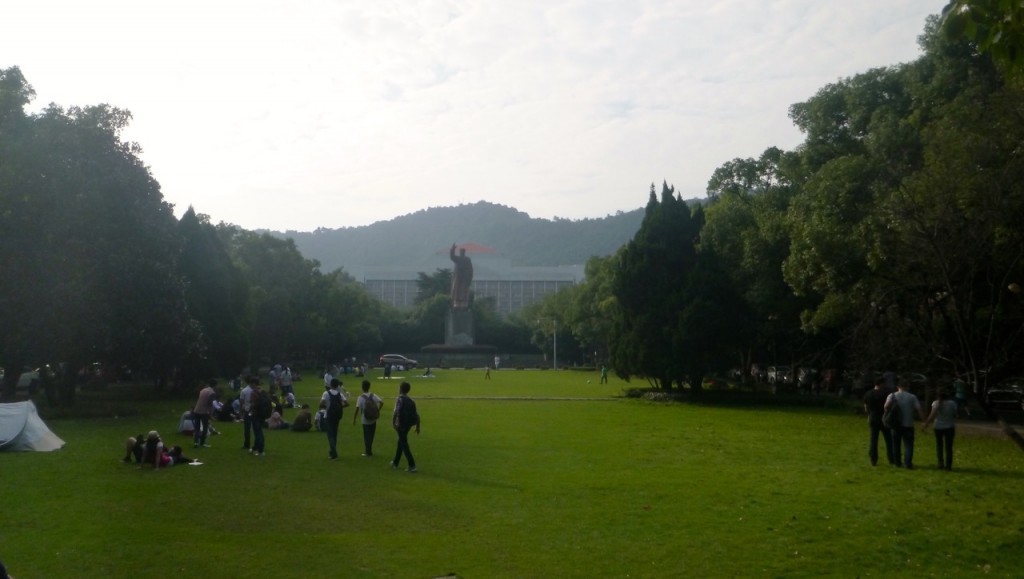
The main quad of Yuquan Campus
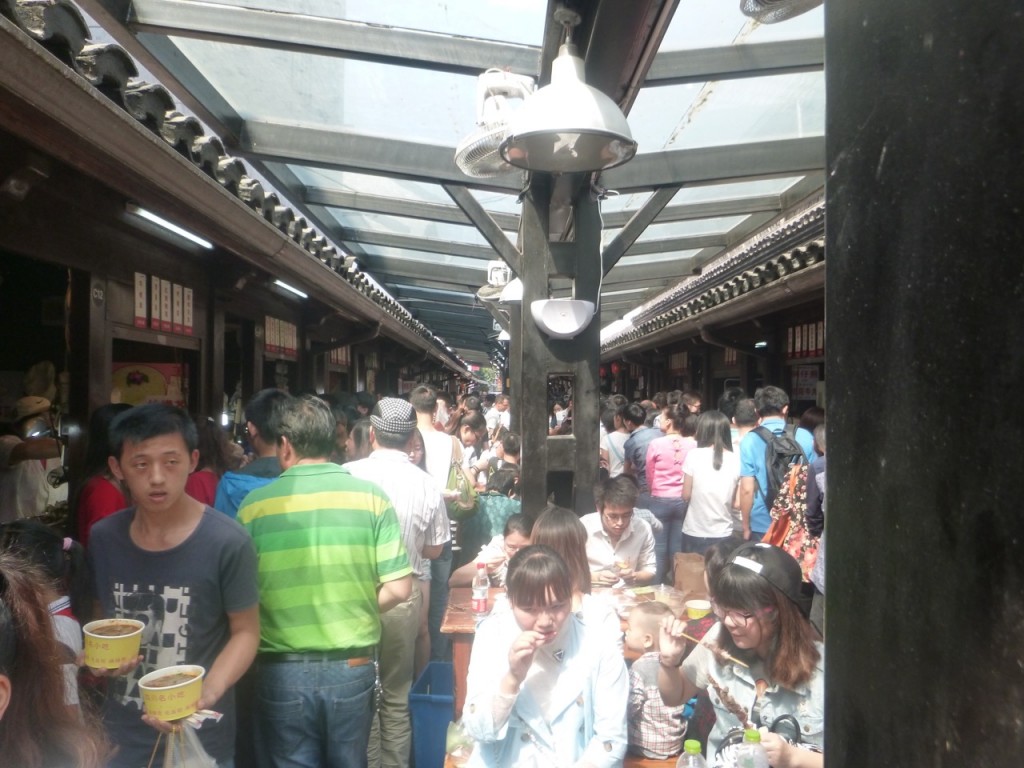
The crowd on Hefang Street
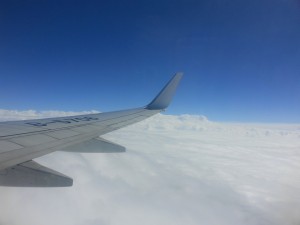 ded on my Ipad as well as an awesome playlist that would keep me grounded as I flew through the skies. 10 hrs of sleep (more or less), 2 movies, and a 2hr playlist later there I was, in Hong Kong. It was not my final destination but rather the first of two stops I had before I would reach Hangzhou. As I landed in Hong Kong a huge sigh of relief came over me as the hard part was now over. I had another 2 ½ hr flight from Hong Kong to Shang Hai but that seemed minuscule compared to the 14 ½ flight that I had dealt with previously.
ded on my Ipad as well as an awesome playlist that would keep me grounded as I flew through the skies. 10 hrs of sleep (more or less), 2 movies, and a 2hr playlist later there I was, in Hong Kong. It was not my final destination but rather the first of two stops I had before I would reach Hangzhou. As I landed in Hong Kong a huge sigh of relief came over me as the hard part was now over. I had another 2 ½ hr flight from Hong Kong to Shang Hai but that seemed minuscule compared to the 14 ½ flight that I had dealt with previously.